SURF APPAREL STARTUPS WITH ERIK INGERSOLL | E017 PODCAST
LISTEN TO THIS EPISODE ON ALL STREAMING SERVICES
ABOUT THE GUEST
Erik Ingersoll of IPD Surf sits down with George Stroumboulis in Costa Mesa, California at the Ideoli Group offices on the Invigorate Your Business Podcast to talk about surf apparel, Nike & Hurley, shark attacks and cash flow.
Erik Ingersoll is an executive in the surf apparel industry with years of experience working for Hurley and Nike before starting his own brand with his partners, called IPD Surf. Erik has worked alongside some of the best and brightest in the surfing industry.
Erik was an executive for the global brand, Hurley, and worked under Nike when they acquired the brand. Hurley was founded by Bob Hurley in Costa Mesa in 1979 and has seen explosive growth over the next few decades. Currently, Erik is the Co-Founder and CFO for IPD Surf. IPD is a newer brand reigniting surf culture with quality products and for those that love the ocean. IPD was originally used on surfboards as a stamp of approval and has evolved into a brand that is distributed in surf shops around the world.
Originally from Philadelphia, Pennsylvania, Erik is a graduate from Penn State with a Bachelor of Science and Operations Management. Spending his summers as a kid surfing in New Jersey, he was destined to move to California to pursue a career connected to surfing. Stay connected with Erik Ingersoll and his company, IPD.
IPD Website: https://ipdsurf.com/
IPD Instagram: https://www.instagram.com/ipdsurf/?hl=en
Erik Ingersoll Linked: https://www.linkedin.com/in/erik-ingersoll-37111524/
“The company culture at Hurley was just second to none. That mindset, the surf culture, everything just bled through that company.”
MEDIA RELATED TO THE EPISODE
Erik Ingersoll of IPD Surf sits down with George Stroumboulis in Costa Mesa, California at the Ideoli Group offices on the Invigorate Your Business Podcast.
Erik Ingersoll of IPD Surf talking with George Stroumboulis about all things surfing and business development.
Erik Ingersoll of IPD Surf talks about his experience with Hurley and Nike, while sharing shark stories from his surfing days.
Erik Ingersoll of IPD Surf sits down with George Stroumboulis in Costa Mesa, California at the Ideoli Group offices on the Invigorate Your Business Podcast.
Erik Ingersoll of IPD Surf sits down with George Stroumboulis in Costa Mesa, California at the Ideoli Group offices on the Invigorate Your Business Podcast.
ABOUT THE “INVIGORATE YOUR BUSINESS” PODCAST
The Invigorate Your Business with George Stroumboulis podcast features casual conversations and personal interviews with business leaders in their respective fields of expertise. Crossing several industry types and personal backgrounds, George sits down with inspiring people to discuss their business, how they got into that business, their path to the top of their game and the trials and tribulations experienced along the way. We want you to get inspired, motivated, and then apply any advice to your personal and professional lives. If there is at least one piece of advice that resonates with you after listening, then this podcast is a success. New episodes weekly. Stream our show on Spotify, YouTube, Apple, Amazon and all other platforms.
ABOUT GEORGE STROUMBOULIS
George Stroumboulis is an entrepreneur to the core, having launched several ventures across multiple industries and international markets. He has held senior-level positions at progressive companies and government institutions, both domestically and internationally, building an extensive portfolio of business know-how over the years and driving profit-generating results. George’s ability to drive real change has landed him in several media outlets, including the front page of the Wall Street Journal. George was born in Toronto, Canada to his Greek immigrant parents. Family first. Flying over 300,000 miles a year around the world puts into perspective how important family is to George’s mental and emotional development. With all this travel to global destinations, the longest he stays even in the most far-out destination is 3 days or less - a personal rule he lives by to make sure he is present and involved in family life with his wife and three daughters. To read about George’s global travels, stay connected with his blog section.
STAY CONNECTED WITH GEORGE STROUMBOULIS
STREAM & LISTEN TO THE PODCAST:
SPOTIFY: https://open.spotify.com/show/1rW2CmxQoiJNEPOZupJlvd
YOUTUBE: https://www.youtube.com/user/Stroumboulis
APPLE iTUNES: https://podcasts.apple.com/us/podcast/invigorate-your-business-with-george-stroumboulis/id1607693240
AMAZON MUSIC: https://music.amazon.com/podcasts/8fc03929-71b3-483a-a64e-153e30b3d462/invigorate-your-business-with-george-stroumboulis
iHEARTRADIO: https://www.iheart.com/podcast/269-invigorate-your-business-w-92187370/
STROUMBOULIS SITE: https://www.stroumboulis.com/podcast
PODCAST SITE: http://www.invigorateyourbusiness.com
OTHER SERVICES: GOOGLE, PANDORA, OVERCAST, CASTRO, CASTBOX, PODFRIEND, PLAYER.FM, PODCASTADDICT, PODCHASER, PODCASTINDEX and RSS FEED.
FOLLOW GEORGE STROUMBOULIS:
INSTAGRAM: https://www.instagram.com/georgestroumboulis/
YOUTUBE: https://www.youtube.com/user/Stroumboulis
LINKEDIN: https://www.linkedin.com/in/Stroumboulis/
TWITTER: https://twitter.com/Stroumboulis
FACEBOOK: https://www.facebook.com/georgestroumboulis
TIKTOK: https://www.tiktok.com/@georgestroumboulis
CONTACT GEORGE DIRECTLY: https://www.stroumboulis.com/connect
FULL SHOW TRANSCRIPT
Erik Ingersoll: It's a very toxic process to build a surfboard. You know, there's this foam that's toxic, and then there's this resin and all the chemicals that go into glassing, the board. It's just not great for the environment. And I started doing this in my parents' house, and they didn't know what I was doing. They're like, what is that awful smell? You know, like, you're going to kill –
George Stroumboulis: Erik's got a crystal meth lab in the basement.
Erik Ingersoll: Right. Exactly.
George Stroumboulis: Today, I sit down with Erik Ingersoll. He's an expert in the surf apparel game and has worked with global brands, including Hurley and Nike. He is also on the co-founding team of a new brand called IPD Surf that is changing the game in the surf apparel industry. Stay tuned for this episode and enjoy.
George Stroumboulis: My name is George Stroumboulis and I'm extremely passionate about traveling the world, meeting new people and learning about new businesses. Join me as I sit down with other entrepreneurs to learn about their journeys. This episode of Invigorate Your Business starts now.
George Stroumboulis: We're going to talk about some exciting stuff today. An industry, again, I know very little about, surfing. We're sitting here with Erik Ingersoll, who is an expert in the surf apparel space, clothing from a finance standpoint. So before we actually get into the show, we're going to put up all the background on you, and we're going to talk about that so we don't have to go into too much detail. But welcome. Appreciate you making the time.
We're going to talk about some exciting stuff today. An industry, again, I know very little about, surfing. We're sitting here with Erik Ingersoll, who is an expert in the surf apparel space, clothing from a finance standpoint. So before we actually get into the show, we're going to put up all the background on you, and we're going to talk about that so we don't have to go into too much detail. But welcome. Appreciate you making the time.
Erik Ingersoll: Yeah, thank you. Appreciate you having me here. This is awesome.
George Stroumboulis: Absolutely, man. You're a couple blocks away from me. Our lives crossed paths through a mutual friend. Shout out Kevin Nolen.
Erik Ingersoll: Yep.
George Stroumboulis: Yeah. He's like, you got to meet this cool dude. He's from Philly local boy. And he's doing some cool stuff out here. So when I met you, you were at Hurley.
Erik Ingersoll: Correct.
George Stroumboulis: Right? So you were at Hurley on the finance side.
Erik Ingersoll: Yes.
George Stroumboulis: Okay. So talk to me, how does a guy from Philly, graduated Penn State, end up in California and then become an integral guy in the surf space?
Erik Ingersoll: Yeah, for sure. So, I guess to understand that, let me, I'll kind of start at the beginning. Like you said, I was born and grew up in the suburbs of Philadelphia. Amazing place to grow up. Awesome. Loved it there. My life revolved around sports, you know, similar to what our kids are going through right now. You know, we cross paths on the sports fields, what, three, four times a week now? And, you know, that was my life. That's what I lived myself and my brother, I have a brother who's a year and a half older, and we would just, you know, I played soccer from a very early age and ice hockey, which are two polar opposite sports. But quickly they became year round things for me. And it was just things that I really enjoyed. And we would literally spend weekends at tournaments and games, and that was just life. Right.
George Stroumboulis: Yeah.
Erik Ingersoll: As a side note, I was fortunate that my family, we had a family beach house along the Jersey shore in a town, Long Beach Island.
George Stroumboulis: Okay.
Erik Ingersoll: New Jersey, which is a little barrier island about an hour and a half from where I grew up. So we would spend summers down there, and it was just at the coolest little town. I loved it there, gained a real appreciation for the ocean, the beach, just that culture.
George Stroumboulis: Yeah.
Erik Ingersoll: And being a kid, like we would just spend hours in the water, bodysurfing, eventually boogie boarding. And then as I got a little bit older, surfing. You know, like it became obvious to me just through observation that like surfing was the cool thing like all the cool kids were surfing. And I was like, I want to do that.
George Stroumboulis: From Jersey. And it's such a small season, right?
Erik Ingersoll: Yes.
George Stroumboulis: Here, it's year round there. It's what, you had two months?
Erik Ingersoll: Exactly. Yeah. It would typically be from Memorial Day to Labor Day. It’s like the real season for the Jersey Shore and even other towns along the East coast. It's so seasonal. And that ended up becoming part of the issue, which is why I'm here. But anyway, I went to high school in the suburbs of Philadelphia. And then I went to college at Penn State. Initially, I was in the, not the medical school, but I guess it would be considered the health and Human development college. Because I was so involved in sports, I didn't know what I wanted to do, but I was intrigued by staying in that industry. I wanted to be around, like, something active, kind of wanted to avoid the office culture and that.
George Stroumboulis: You were thinking sports sciences, something?
Erik Ingersoll: Sports medicine.
George Stroumboulis: Okay.
Erik Ingersoll: Exactly. Yeah. So even when I was in high school, there was a class you could take that was sports medicine. And you kept to go to all the sports events and just be involved in that. You know, the ones that I wasn't playing when I got to Penn State, I think I spent, I may have even transferred before I even took the first course, but I think I looked at like the course schedule and all the biology and sciences, and I quickly realized like, this is not for me. Right. I'm not going through that. You know, it wasn't something that I was that interested in pursuing. So I still didn't know what I wanted to do. I transferred to the business college. And I knew at the time that business, like studying business is such a broad-based feel. Right. You can do anything. And honestly, I would recommend that to anybody that's not sure of their specific path.
George Stroumboulis: 100%
Erik Ingersoll: Outside of, if you know you want to be a doctor or lawyer, whatever, you go down that path. But if you don't, business is such a good broad base.
George Stroumboulis: Great advice on that.
Erik Ingersoll: Yeah.
George Stroumboulis: Like just, it opens up everything.
Erik Ingersoll: For sure.
George Stroumboulis: And then you could go be a beautician, air conditioning person, whatever it is. But that's such a strong foundation.
Erik Ingersoll: Yeah. And it's unfortunate that, I don't think at least my high school didn't, but high schools don't teach that business and finance curriculum.
George Stroumboulis: The basics. Like, I wish they taught, hey, man, tax season.
Erik Ingersoll: A hundred percent.
George Stroumboulis: How do you do your taxes?
Erik Ingersoll: Yeah.
George Stroumboulis: Oh, you want to buy a house? What's a mortgage? Like, how do you go about like, basic courses? We're learning how to make cupcakes in homemed class and all this stuff. Yeah. You're absolutely right.
Erik Ingersoll: No, but like, to your point, even if you want to be a beautician, like you still need to understand like the business side of it. If you want to open up your own storefront. Like there's leases, there's a P&L that you need to manage, expenses, things like that. So at Penn State, which is an amazing school, I loved it there.
George Stroumboulis: Great reputation globally. Yeah.
Erik Ingersoll: Yeah, for sure. It was a Smeal College of Business. I gained that base and my focus was really on the operation side, which again, it's a pretty broad based area of business. You know, I was exposed to finance, accounting as well as supply chain, inventory management and also data management.
George Stroumboulis: Okay.
Erik Ingersoll: Which in the story, you'll learn that was a big part of my early career too. Upon graduating, I moved back to where I grew up. You know, which was outside of Philadelphia. At the time, it's funny, when I graduated, I was not sure like exactly what company I wanted to work for, but I was seeking such validation, like I wanted to work, or I wanted to be accepted by a big company. Like if a big company came and they're like, hey, we want to interview you, we want to give you a job. To me, at the time, that was such validation. It was like, oh my gosh.
George Stroumboulis: Where did that come from? Was it coming from a top school? And it was like, hey –
Erik Ingersoll: I'm not sure. I'm not really sure. I think it was just like when you graduate, you're kind of lost in the corporate world, and you're like so low on the totem pole and you're like, I just want like to get an offer. Right?
George Stroumboulis: Yes.
Erik Ingersoll: So I had applied to a few companies and ended up getting an offer pretty quickly with a company based out of Malvern, Pennsylvania. And it was a big company that was in the document solution space.
George Stroumboulis: Okay.
Erik Ingersoll: Right. And they were publicly traded. I think it was like a 5 billion company at the time.
George Stroumboulis: Maybe starts with a X.
Erik Ingersoll: Yeah, for sure. And anyway, I was in the operations side of the business. Yeah. You know, managing their data and inventory and just certain stages of their inventory. And I had a really good mentor who was my boss. So, he had a finance background, but he was working on the operations side of the business, supply chain. And he really taught me about data integrity and just like being able to work with senior management and things like that. I remember from early in my career, I never had an issue like communicating with, or working with the top level, the executives, the CEOs, like, things like that. It was just never a lot of people get nervous in that situation. And it was always comfortable for me. And I think the other side recognizes that, and it helped me a lot in that. Everybody's just people, right? Everybody's got personalities.
George Stroumboulis: To your point though, you specifically, you have a very special way of communicating with people. Like when we first met I'm like, oh, he's just a good dude. Honestly, when Kevin introduced us, he's like, oh, I have a buddy at Hurley, let's go. And I think we went to A's and grabbed dinner, or it was somewhere like that. And again, you don't realize the level and how high up you were and what you were doing. It was just a cool dude. East coast mentality, just kind of nice guy. And then you see that, and then over the years, like you said, through birthday parties or whatever, you see, like, you will talk to the guy serving the tacos at the taco truck the same way to the guy that owns the facility where the party is. Yeah, you have a real skill in being able to do that.
Erik Ingersoll: Yeah. Thank you. Thank you for that. Honestly, I would probably attribute that to my dad. My dad's like that like, he will treat everybody the same. Doesn't matter who you are, what level you are at, and he's a conversationalist. He loves to talk, so just loves telling stories.
George Stroumboulis: Corporate background, your dad?
Erik Ingersoll: Yeah, corporate background. He's been working with a fabric company actually, sell like leathers and fabrics and things like that, but he's on the sales side.
George Stroumboulis: Okay.
Erik Ingersoll: So he manages the sales force there in the US. So, he's probably getting close to retirement age. I keep asking him, but he's always like, ah, give it a little bit more time.
George Stroumboulis: Yeah. Let him milk that.
Erik Ingersoll: Exactly. For sure. But anyway, so working at the company that I first started with after I graduated I got that validation that I was looking for and I kind of realized pretty quickly that like, okay, this is cool. I'm in the workforce, not really what I want to be doing. Like, not the company. Right? The work was fine. I was cool with that. And I was doing well with it. Like I said, I had a really good mentor. And because he had a background in finance, he eventually moved over to the finance side. I didn't per se have a finance background, but I had taken a bunch of finance courses, accounting courses, things like that. So I knew enough to be dangerous. Where we connected was on the data management side. Right. Like, we just worked really well together. When he moved over to the finance side, he asked me to come with him, and he kind of explained it like, hey, it's the same thing. Data's data. You know, like, you're obviously managing data the same way that you would if you're talking about inventory or talking about a P&L.
George Stroumboulis: In the same company.
Erik Ingersoll: The same company.
George Stroumboulis: Brought you, okay.
Erik Ingersoll: Exactly. So I ended up moving over to the finance side and never looked back. You know, I enjoyed that. I enjoyed seeing like, kind of, it's kind of like the behind the curtain view of a company, knowing what's going on in the company. And this was a publicly traded company at the time, so it was cool to see that information. But like I said, the widgets weren't exactly what really drove me.
George Stroumboulis: Still had sports in the back of your mind, right?
Erik Ingersoll: Yeah. Still had sports and also because of my connection to the beach and the ocean, I was spending a lot of time there. Right. And surfing kind of took over as a main focus of my life.
George Stroumboulis: Okay.
Erik Ingersoll: You know, I got really involved in it, not just riding surfboards, but like the culture and just like the history of surfing and even board building. I started getting into like making my own surfboards and just –
George Stroumboulis: In Jersey?
Erik Ingersoll: In Jersey. And actually, Pennsylvania in my parents' house. There's a funny story. I mean, I started getting into it and like, it's a very toxic process to build a surfboard. You know, there's this foam that's toxic, and then there's this resin and all the chemicals that go into glassing the board. It's not great for the environment. And I started doing this in my parents' house, and they didn't know what I was doing. And they're like, what is that awful smell? You know, like, you're going to kill the –
George Stroumboulis: Erik's got a crystal meth lab in the basement.
Erik Ingersoll: Right, exactly. For sure. It was kind of like that. But it was cool. Like, I learned the process of doing that and it was just through watching YouTube videos and figuring it out. And you know, I think as surfing took over, I started realizing that like you had said this, the season in New Jersey for going to the beach is pretty limited. And I started going year round. And surfing and tracking swells and things like that. And I got to the point after 5 or 10 year, whatever, however many years I was doing that, it's brutal. It's cold. The water could be in the thirties, the air temperature could be in the teens. There's snow on the beach. And I enjoyed it for a long time.
George Stroumboulis: You would do that even in Jersey, like in the snow.
Erik Ingersoll: I would, yeah. Year round. It turned into a year round thing for me.
George Stroumboulis: You were nervous out there more so of sharks or anything too, or, that was never a factor.
Erik Ingersoll: Honestly, I've never thought much about sharks or anything else in the ocean. I think I just put it out of my mind.
George Stroumboulis: Really?
Erik Ingersoll: Yeah. I don't know why.
George Stroumboulis: Which is a lot of people who don't do that type of activity. That's their biggest barrier.
Erik Ingersoll: Yeah, for sure. I don't even think about it and I know that it's out there. I know that fate can kind of take over at times, but I really don't even think about it. In fact, I saw my first shark in the wild just this past summer.
George Stroumboulis: Come on.
Erik Ingersoll: Yeah.
George Stroumboulis: What beach? Because I will never go there.
Erik Ingersoll: Well, you're not going to like this, but it was in Newport.
George Stroumboulis: Are you serious?
Erik Ingersoll: Maybe 150 yards off the coast, off the beach.
George Stroumboulis: Come on. I saw a seal when I did the surf class, and we could talk about that later. I saw a seal pop up 10, 15 feet from me. And I almost shit myself. Because I'm like, oh my God, it's something. And then there's five and six and seven year old kids around me, and they're just like, oh, it's a seal. And I'm just like, trying to get ahead to make sure that – yeah, that's insane.
Erik Ingersoll: The funny thing was, you know, I was doing a training paddle on a prone board, which is a board that you lay down on for distance paddling. And a friend of mine, we're used to seeing seals, we see them all the time, dolphins, fish jumping, whatever. And I was paddling with some friends, and one of them pointed ahead and he said, up there, that's a shark. Oh god. And I looked, and I could tell immediately. I've seen thousands and thousands of dolphins swimming. I saw this fan and I knew immediately that it was a shark and it was coming right at me.
George Stroumboulis: Come on.
Erik Ingersoll: And you could tell by the way they swim, dolphins, they kind of like go up and down. And the shark fin is just kind of –
George Stroumboulis: Always above water.
Erik Ingersoll: The fin was, the dorsal fin was above water, and he was swimming maybe 10 feet away from me, like in that line. And to your point earlier, I wasn't even nervous.
George Stroumboulis: Well, but what was your strategy? Like I would try to knock someone else over so I could get away.
Erik Ingersoll: What I was thinking, I've watched a lot of shark week, right? And typically, what you see with sharks that attack, they use the element of surprise. They're coming from beneath and they don't want their prey to see them coming. So my thought was, well, this shark knows I'm there, it's not going to attack me. You know, it was just minding its own business and it just swam right by.
George Stroumboulis: Were you paddling or were you just holding onto the board that way?
Erik Ingersoll: I was paddling and I'll be honest, I even moved a little closer to it to get a better look because like I said, I could tell that it wasn't interested. I really don't think that sharks are interested in humans. You know, I've seen enough footage of attacks and things like that and when sharks do attack and not to divert too much from the topic, but when sharks do attack, it seems like it's just exploratory. You know, the unfortunate thing is an exploratory bite for them could be fatal.
George Stroumboulis: Absolutely.
Erik Ingersoll: Or could take a limb off. But I just, I don't know. I think that mindset, like I know sharks aren't like, oh, there's a person, I'm going to go eat it.
George Stroumboulis: That kind of explains your demeanor in general in life. Like just chill.
Erik Ingersoll: Yeah. Just chill.
George Stroumboulis: Little backstory, I did shark diving in South Africa, where they filmed Shark Week. You know, there Australia. And there's an area called Gansbaai. I'm butchering that. And the locals are so annoyed that this has become a tourist destination because they'll go out there and they put all the chum in the water and they create this false environment, and then tourists go down in the cage and they're taking pictures and they're like, this isn't natural. Like you're teasing the sharks, you're pissing them off. And then you see like these 12 foot great whites just chomping out the cage, so doesn't help with the psyche.
Erik Ingersoll: Right. That's a different whole different animal. South Africa. There's certain beaches that I just wouldn't go in knowing how sharky they are.
George Stroumboulis: Yeah, yeah, exactly.
Erik Ingersoll: You know, I'm not that immune to it.
George Stroumboulis: My God. No, no. But so you have that mindset. You're in PA, Pennsylvania, and you get to this point, you're like, great, I'm working for a publicly traded company. I'm doing some amazing things. And then from there, you have this itch to move out. So where do you go from there?
Erik Ingersoll: So, back to the surfing thing, like being out there when it's frigid and cold, I kind of looked around and I was like, this isn't what I signed up for. You know, in surfing, like you see the images on TV and movies and it's warm beaches, you know, board shorts. And I was kind of like, this isn't what I signed up for. This is brutal. And you know, I have some family that lives in California in Santa Barbara. So I'd been to California a bunch, started making some trips there with friends, actually, Kevin Nolen, who you know, we talked about earlier. He lived here. I visited him a few times and I realized, okay, there's a whole world out there that isn't like this, that kind of suits what I'm looking for.
George Stroumboulis: Right.
Erik Ingersoll: And I made a very planned move. I'm not the type of person that could just like quit a safe company and position and situation in life and just wing it. So I actually planned it out. I interviewed with some companies on the West coast. It ended up working out, I resigned from my company almost, I think five years almost to the day.
George Stroumboulis: Oh, wow.
Erik Ingersoll: Yeah. It just weird how that worked out. And I resigned and luckily, I had the support of my parents and my family. They were like, hey, this is something you really want to do, go for it.
George Stroumboulis: No wife, no kids at the time. No girlfriend just came out. Okay.
Erik Ingersoll: Exactly. Which made it a lot easier.
George Stroumboulis: Yeah, absolutely.
Erik Ingersoll: You know, I think a lot of people that kind of have that dream in their head to go somewhere, get tied down by those things. And I think very early maybe even in college, I realized like, okay, at some point I'm going to make a move. You know, and I think that was always in my head. So I didn't want to buy a house or anything that would tie me there. And not say, I loved growing up there. Like that was just a super cool place.
George Stroumboulis: Made you who you are.
Erik Ingersoll: Exactly.
George Stroumboulis: Yeah.
Erik Ingersoll: You know, so anyway, I moved to Newport Beach and I had a job, and it was in this similar space. It was in financial analysis. The company was a data storage company. So if you know video editors that require those huge hard drives, we sold those. And it was cool. I liked it. I enjoyed it. What ended up happening was shortly after I had moved, I think within six or eight months, the company was sold to Hitachi.
George Stroumboulis: Oh, wow.
Erik Ingersoll: And what they did is they moved the finance team up to San Francisco. So they were like, hey, do you want to move to San Francisco? Or do you want to leave the company? And I was like, well, I just moved here. I specifically picked Newport because I really enjoy this area. I decided to resign.
George Stroumboulis: Okay.
Erik Ingersoll: And the controller at that company, he just happened to have a friend that worked at Hurley, I think they went to college together and remained friends. And he said I know you're super into surfing. I have a friend who works at Hurley. She's looking for exactly somebody that does what you do.
George Stroumboulis: Stars aligning.
Erik Ingersoll: You interested in maybe interviewing. And I had literally just, you know, I was still with the company, but just decided, hey, I'm not going to move to San Francisco. And I said, yeah, absolutely. Like that's a dream situation. That wasn't even on my radar to work for.
George Stroumboulis: You weren't not indeed, or anything. Like this just happened organically.
Erik Ingersoll: No, like growing up in Pennsylvania, working for a surf brand was not something that you typically think about. It's an amazing thing. And I had just always known like, oh, it's so hard to get those jobs, you know? So anyway, the stars aligned. I interviewed and got that position. It was in finance, of course. I was reporting to the VP of finance at the time, which was awesome. I was like, I finally found this company where I felt home. Like, I was with like-minded people that enjoyed surfing. You know, it was encouraged to surf. The company culture at Hurley was just second to none.
George Stroumboulis: What you guys sold, like, that whole image of surf free, was that the same in the work environment as well?
Erik Ingersoll: Absolutely.
George Stroumboulis: So everyone there pretty much loved surfing, loved the environment.
Erik Ingersoll: Yeah. That mindset, the surf culture, everything just bled through that company. You know, and I will say this, just to give you a little bit of background on Hurley. So Bob Hurley, who started Hurley, his roots were actually in surfboard shaping. You know, he used to make surfboards in this area in Huntington Beach in Costa Mesa back in the late seventies and early eighties. That was his means of making a living and he was super well-respected and he had a big following with a lot of locally, a lot of surfers just, you know, he was a well-respected shaper and just well-respected by the surf shops and things like that. He had a shaping bay not far from where we are right now in Costa Mesa, right off Placentia in 17th. And he had a small storefront in there, where he would just sell t-shirts and accessories, things like that.
George Stroumboulis: Non-Branded, it was just a surf.
Erik Ingersoll: Yeah, I'm not really sure. I think it was probably just like Hurley surfboards or sell some wax or leashes, whatever. I don't even know if leashes were a thing then. But anyway, he had a small storefront and what he noticed was at the time, everybody was wearing these really short board shorts. Right? Super tight and short. And he saw these surfers coming over from Australia and internationally, and they had these cool longer board shorts. And he was like, I got to get those. I got to get those from my shop, you know, I'm going to sell those. So, he tracked down the guy who made those, as it turns out. It was Gordon Merchant from Billabong in Australia.
George Stroumboulis: Wow.
Erik Ingersoll: So he reached out and he said, hey, I want to get some board shores to sell in my shop. You know, and I think Bob really, the way I understand the story is he just wanted to sell it in his little storefront. Gordon Merchant was like, okay, I want this guy to distribute my board shorts in the US because it was just an Australian based company at the time. So, through some negotiation, Bob became a distributor of Billabong. You know, I think he maybe bit off a little more than he could chew in the beginning, but figured it out.
George Stroumboulis: And was Billabong at the time, they were a growing brand, right?
Erik Ingersoll: Yeah. I think Billabong started in the early seventies. This is probably 1980, 81, 82, something like that, where this Bob connected with him and Bob, I guess by default became the US distributor of Billabong. Right? And he distributed it so well that that kind of took over his surfboard shaping business. You know, that surfboard shaping, like I said before, is a messy, not super profitable business. Whereas, I think he was finding some success in distributing Billabong. Right? So, he built that company up in the US all through the eighties and all through the nineties to be bigger than the Australia Company.
George Stroumboulis: Which we all know now, Billabong in Canada as a little kid. That would have a Billabong shirt. Totally unrelated to surfing. But it made its way up there as well. Yeah.
Erik Ingersoll: Yeah. Billabong was a massive company. And for whatever reason, Bob in the late nineties decided, you know, I've been doing Billabong for close to 15, 20 years, I want to do my own thing. And it shocked a lot of people in the industry at the time, and he actually gave back the license and people were like, tripping out, are you doing, oh my God, what are you doing? Like, you're crushing it right now. This is such a successful business. And funny enough, the Billabong headquarters were where Hurley is now in 19th and Placentia. And literally just flipped it, gave back the license and just started Hurley, same location, a lot of the same employees. A lot of people that worked at Hurley when I was there were from the Billabong days.
George Stroumboulis: No way. So just really quick on there. For people not familiar with the United States, California, this area that we're in. So we're in the state of California, we're in Orange County. This specific area of Newport Beach. Huntington Beach for the viewers will put up a map Costa Mesa. It's the hotbed of Surf Culture USA. A lot of the brands are here. Right. The surfing, that's why you moved here from Pennsylvania. So like this is the hotbed of all things surf. Right?
Erik Ingersoll: It is, you're. I should have mentioned that there's just within a couple blocks in West Side cost of Mesa, there's a lot of big brands. Hurley, Volcom, RVCA, like literally within like three or four blocks, you know, and not sure why that is. It's not like the waves in Newport are like these amazing waves, but I think it's just centrally located between LA and San Diego. So obviously, there's a massive beach culture there. So maybe that plays into it.
George Stroumboulis: Vans as well.
Erik Ingersoll: Vans as well. Yep. Vans started, I think in this area, they were in Cyprus for a while and then just redid their headquarters in Costa Mesa. Amazing headquarters right off the five, I think.
George Stroumboulis: Yeah. Really nice.
Erik Ingersoll: Yeah, yeah.
George Stroumboulis: So sorry, back to Costa Mesa. Bob. Hurley overnight becomes no more Billabong. It's Hurley his brand.
Erik Ingersoll: Exactly.
George Stroumboulis: Okay.
Erik Ingersoll: Yep. So, and there were a lot of things that happened right off the bat that propelled Hurley into the stratosphere, like on day one, you know, like if you remember at the time, now this is 1999 when Hurley started, MTV was a big thing back then. There wasn't social media, no iPhones, things like that. So seeing surfing on TV and things like that and on a screen was just few and far between. Right. So there was one really big thing that happened. If you remember, MTV was huge in the late nineties. I mean, just massive kids watched it. Bob and a lot of the people he had worked with had connections. At the time when Hurley was started, it wasn't just about surfing, it was music, art, skate, surf, like all these things bridging youth culture. Right?
George Stroumboulis: Got you.
Erik Ingersoll: So there were bands that Bob was friends with and you know, people that he worked with were friends with that connected these bands to the brand. Big one that really helped was Blink-182.
George Stroumboulis: Huge at the time.
Erik Ingersoll: Yeah. Huge band at the time. This is late nineties. Blink-182 would wear Hurley gear when they would go on stage.
George Stroumboulis: That's right.
Erik Ingersoll: So there was a MTV Music Awards in the late nineties, where Blink-182 came on stage and I think they were required to tape over the logos by MTV and right before they went on stage, they ripped the tape off and it was like Hurley front and center and like, huge moment for the brand. And I think it just exploded. Right? Kids wanted to buy Hurley and Hurley was successful right out of the gates.
George Stroumboulis: That's incredible.
Erik Ingersoll: At the same time, now fast forward to the early two thousands, Nike was looking to get into the surf space. Nike was looking for a young, up and coming brand to acquire. Nike acquired Hurley. You know, there's a funny story about Bob meeting Phil Knight and the Nike team when he went to pitch it. And you know, Nike was very corporate at the time, very established, very successful. And Bob went up to Oregon, Beaverton Oregon to meet with the Nike team and Phil Knight, and he didn't have anything prepared. You know, I mean, Bob Hurley's such a great personality that I think he just showed up and he was like, Hey, I'm really sorry I didn't bring like a presentation or anything. And Phil Knight was like, oh my God, this is going to be the best meeting of my life. Like I've been in presentations all day. So he just talked, and Bob is so electric when he talks that he sold Hurley based on his merit and his personality. And anyway, Nike bought Hurley in, I think it was 2002. And I don't think it really changed much for Hurley, especially in the beginning. I think the brand was able to operate very independently be a subsidiary of Hurley, not completely swallowed up by the corporate machine that Nike is. And it was super rad. I came on board, I think around 2007.
George Stroumboulis: Oh, so you were there, right?
Erik Ingersoll: I mean, not long after the acquisition. But I think if you talk to people that were there from Billabong to the early days of Hurley by 2007, I think a lot of things had changed at that point. But it was still, I mean, those were the glory days. The funny thing is that when you're a company owned by Nike, you basically, it's almost like having extremely wealthy parents. You know being in the business world and being on the finance side that I was, we didn't have to think about cash flow like it was, you just had money that showed up. We did have to pitch certain things to them. You know, if we were planning to spend a lot of money for say, the US open of surfing, which takes place in Huntington Beach, it's an expensive event. So there were things like that. Or if we wanted to open up a new store, there was a process to pitch, like, hey, we want to spend some money on this. And there was an approval process.
George Stroumboulis: Daddy always gave the allowance.
Erik Ingersoll: Yeah. He pretty much gave the allowance. You know, it wasn't difficult to get that approval. So it was just a funny thing. I mean, we would talk to friends in other brands and companies and like cash flow's such a big part of it on the finance side.
George Stroumboulis: The most. Yeah.
Erik Ingersoll: The most important part. And you breathe it, I breathe it. Now today, but we didn't have to think about that. It was super cool. And we just got to do a lot of amazing things that I think other brands didn't have access to. You know, and we were able to do it because of Nike and because of that access to capital.
George Stroumboulis: So it's incredible. And we're going to talk about Hurley, you come on, but it's almost backwards in that, you get a great education, great institution, right? You go to a publicly traded company, you come out here, then you get a job with a company that reports into Nike publicly traded, big corporate. So you have that pedigree. And then fast forward to today, now it's basically back to startup mode. It's, how's the cash flow going to work? How are we going to do this?
Erik Ingersoll: Yep.
George Stroumboulis: Great transition. But before we get into IPD, talk to me about, you're at Hurley right now, right? And you climb up there and you become top on the finance side. What did you see? Because at some point, Nike basically sold it back and Hurley became independent again. Is that true?
Erik Ingersoll: No, that's not true. But I think you brought up a good point. I'll clarify. So you brought up a good point in the sense that like, Hurley was by all means, a small company, big in the surf industry but a small company in comparison to Nike. So for me specifically, I always looked at that as like, this is amazing. I get to work at the small company, but a lot of my roles and responsibilities were working with the Nike team.
George Stroumboulis: That's huge.
Erik Ingersoll: You know, and gaining that exposure and experience in how they operate. So, I got to experience the small company and the giant company at the same time. You know, I was on specifically more the strategic financial side, planning the business out five years. Like, what's it going to look like? And like I said, working with that Nike team, they're such a big machine, they're a pretty well-oiled machine. You know, not saying they're perfect, but it was a great company to plug into.
George Stroumboulis: So let me ask you.
Erik Ingersoll: For my experience.
George Stroumboulis: Okay. So when you're, and again, this is a long-winded, it could be a long-winded answer, but when you're doing strategic planning five years out. Right? And you're reporting into Nike, you're doing it for Hurley, what does that even look like? Who are you sitting down with? Are you sitting down with the Bob Hurleys of the world? Are you talking to sales? Like, what were you doing at that point to help formulate these plans?
Erik Ingersoll: Yeah, so I had gained a lot of really good contacts at Hurley. You know, just friends. Being on the finance side, it was always, you know, almost like us versus them, you know. And I think I sort of broke down that barrier because most of the finance, true finance people aren't like passionate servers, you know? And because I surf and I was so into it, I think a lot of the design folks and the marketing folks appreciated that. And it broke some barriers down, where we could work together better than somebody that didn't understand the surf industry. So like that process would be just meeting with the sales team, okay guys, like what are we looking at for these accounts over the next couple years? How can we grow those? What markets can we get into? What accounts are we planning to grow? What accounts do we want to divest of internationally? What territories are growing right now? You know, so like, literally planning it soup to nuts, full P&L. Like, we would start on the sales side, see what the revenue's going to look like. Then meet with all the key stakeholders on the expenses, key departments and plan out like headcount expenses. Just everything literally down to the penny. Like, okay, how is this company going to work and be profitable for the next five years? You know? So it's a good point to bring that up because it was, you know, at Nike, I don't think the finance folks that I would deal with, they never had full P&L exposure. They would be very hyper-focused on one thing, be it margin improvement or expense analysis. And I was always looking at the full picture, full P&L like everything and I always wanted that and I always liked that. You know, as it kind of progressed in the surf industry at the time, just kind of a little side note, a lot of the brands that had started out as, and this will segue sort of into IPD, but a lot of the brands that started out as core and super surf centric, the founders were super core, everything matured. All through the nineties, through the early two thousands. Like, it was a heyday for surf. You know, if you remember like extreme sports, like X Games, all that stuff was like just exploding. Companies were going public. Companies were owned by private equity. Founders were cashing out. Right. And it was a weird time, although a very prosperous time for the surf industry, because I think it sort of got away from its roots.
George Stroumboulis: So is that what you mean when you say it was maturing? So when it started at a certain age group, everyone was kind of getting into a different phase.
Erik Ingersoll: I think that, and also just the companies were maturing. You know, it ended up becoming a top line revenue chase. Everybody just wanted to be bigger and bigger and bigger on the revenue side and sacrificing distribution in the process. And by that, I mean, you know, surfers are funny. Like surfers want to wear stuff that makes them feel like, hey, we're different than everybody. You know? So if something, if there's a brand that's distributed everywhere, be it Costco or Macy's or Nordstrom, it does make it uncool to the core surfer.
George Stroumboulis: They kind of sold out to Mantro.
Erik Ingersoll: Exactly. You know, everybody's wearing this brand, whatever. And it's happened to a lot of brands historically, if you remember Gotcha and OP, like those brands had their moment, they got a little bit too big and over their skis and ended up collapsing. You know, the demand just kind of shifts.
George Stroumboulis: When you're buying them and you can buy them in like a Kmart, you know that it's exhausted.
Erik Ingersoll: Yeah. Exactly. It just kind of goes through a little bit of a cycle. And I think that's the challenge with brands staying core, but also being big enough and profitable, but then it brings the question like, what is big enough? You know, and even at Hurley, we went through this exercise where we just felt like we were chasing revenue and it's not always the most profitable. What ended up happening, I think you alluded to it earlier, Hurley was sold by Nike in 2019-20 timeframe.
George Stroumboulis: Oh, recently. Okay.
Erik Ingersoll: Yeah. Fairly recently to a company out of New York, it was a licensed company that took it over and kind of changed the dynamics of the company, really licensed every part of that business out. So where we did everything in-house from design to marketing to sourcing and production, everything like that. They had divided the company and hey, men's Apparel was done by this company, women's Apparel was by this company. And swimwear was by another company and they branched into a lot of different markets that are not endemic to surf. And most of the company at that point, shortly after the sale was gone, the people, they had trimmed the headcount. I ended up staying on for a little bit. I stayed for I think a year. And I had moved to a role that was more like a, it was the CFO of the retail division. So over all the stores, the owned stores that they had and the e-commerce business.
George Stroumboulis: Was the majority of their sales at that time online?
Erik Ingersoll: No, it was still, I mean, fairly large for a surf brand, but I'd say probably only 15% of the business at the time. And you know, like that's the big opportunity, right? E-Commerce, everybody's talking about e-commerce, it's the future, it's this, it's that. What I ended up doing, so I resigned after a year. They had wanted me to stay on a little longer. So I ended up staying on for a couple more months to consult and just kind of make the transition a little bit smoother. You know, I don't want to burn bridges or anything like that. So I stayed on, I made sure it was a smooth transition. So I had resigned around the same time that I resigned, you know, I had left Hurley, some friends of mine from Hurley were chattering and chatting and they were talking about starting a new brand. And the proposition was, hey, we want to take the surf industry that's kind of for the most part, all the big brands have sold out or owned by private equity or publicly traded. And we want to go back to the roots of surfing. And I was hooked immediately. You know, I knew that the folks involved and they wanted to bring me on as a partner. And I was like, absolutely, I'm in. I didn't even have to think twice.
George Stroumboulis: Really quick there. When you said absolutely, where were you in your personal life? So kids, married?
Erik Ingersoll: Yes.
George Stroumboulis: COVID didn't really start yet. It was right before that.
Erik Ingersoll: So, when Hurley was sold, it was right before Covid happened. I stayed on with the new company for a year, which is after Covid. So this was 2020. I resigned at the end of 2020. Stayed on for a couple more months into 2021. I am married, I had two kids at the time. I now have three. Own a house like pretty –
George Stroumboulis: Yeah.
Erik Ingersoll: You know, need to be responsible. Like I said before, I don't wing things like that. You know, I had a little bit of a savings built up where like, okay, I can swing this.
George Stroumboulis: You know, and that's a big deal that's why I wanted to bring light to that, like you had a child during Covid. You leave corporate background. Now it's like, shit, let's go, let's start this. That's pretty amazing. Kind of leading into the IPD type.
Erik Ingersoll: Yeah. Leaving a very safe environment, a steady paycheck, things like that is always tricky. And I think I planned it out okay. Like I said, I don't just jump ship and hope my parachute opens. I plan for these things. But anyway, we started talking about IPD and it kind of snowballed and it happened pretty fast. You know, IPD funny enough, was a brand, a logo that existed back when Bob Hurley was shaping surfboards.
George Stroumboulis: In the seventies?
Erik Ingersoll: In the late seventies and early eighties. So he was shaping surfboards under this label, Hurley surfboards. And he would use international pro designs.
George Stroumboulis: So IPD is International Pro Designs?
Erik Ingersoll: Yes. That's what it stands for. And what he was trying to do at the time, he wanted to break down barriers between surfboard shapers. He wanted to progress boards, he wanted to make them lighter and faster and better performing. And he wanted to share ideas between shapers. Right. Like, hey, like you tested this design, does it work? You know, like, let's get together and share ideas. Kind of like a I think, what is it? Universal laboratories or underwriter laboratories that electronics used to say like, Hey, this is certified. It was like a stamp of approval. And what he had found at the time was surfboard shapers didn't want to share ideas back then. They were very much like, this is protecting their own stuff. So that logo he had put it on his boards and it became like a little bit of a thing in the eighties, you know. What we're finding now is a lot of people that see the IPD logo and how we've adapted it to apparel, they're like, dude, that's insane. My first surfboard had an IPD logo on it. Like brings back a lot of memories for them.
George Stroumboulis: That's great. Yeah. I didn't know that connection.
Erik Ingersoll: Yeah. So, like he had owned that logo and it just kind of sat in the background, all through the Billabong days and all through the Hurley days. So it was a no-brainer when we wanted to launch a new brand and we're like, Hey, this actually has some history. There's a story there. We're not just making this up.
George Stroumboulis: Exactly.
Erik Ingersoll: Like, proof there's this new brand. Like there's actually a story and you know, it goes back to board building and it totally resonates with where surfing is today. It's all about boards. You know, shapers. Giving shapers that empowerment to like do their thing. There's a lot of backyard guys that are doing it. And it's just super cool, like this board building culture. So, when we decided to launch it, IPD was, you know, that was it.
George Stroumboulis: It was a natural fit.
Erik Ingersoll: It was a natural fit.
George Stroumboulis: And it survived the acquisition, the resale and everything.
Erik Ingersoll: Exactly. Bob was smart. Before he had sold all of his IP to Nike, he knew that he was giving up everything. He sold that logo to a friend of his that shaped surfboard and said, hey, you take this, take it. And the guy the shaper, Saku Murata, he still shapes today. He used the IPD logo on his boards. When we approached him and said, hey, we want to do something with apparel. It was like, absolutely. You know, he's a Japanese shaper and part of their culture is like very respectful. And he wanted to give the logo back to us and we're like, no, because you know, the Hurley family.
George Stroumboulis: We will buy it back.
Erik Ingersoll: Aside from myself, the Hurley family is part, but Bill Hurley and his brother Bob are part of IPD. So when I say we wanted to start this brand, the Hurleys are now part of IPD, not Hurley anymore.
George Stroumboulis: You're aligned with that greatness. Right. Like in this space, that's huge.
Erik Ingersoll: Yes.
George Stroumboulis: So they're part of this team. You're part of the founding team. And so this is exciting.
Erik Ingersoll: Yes. So I'll clarify. Bob Hurley is retired. Bob is mostly retired. He is, you know, because of the origins of IPD, he's heavily invested in just seeing the success. So he's been an unbelievable sounding board and cheerleader and just, he's been such a great resource to us. He's been through building brands multiple times. So he's been a great resource. We've kind of taken it, we're like, Hey, we don't want to rely on Bob to build this for us. But he's been a great resource, he really has. His brother Bill is involved in the day-to-day. He's one of the partners along with Mark Simpson, who's on the sales side, Seth McKinney, who's also on the sales side. He does a lot of the operation stuff too. But our founding core team, you have myself on the finance side, Mark and Seth, who I mentioned, they were part of the first round of sales reps that Bob hired at Hurley in 1999, specifically working with surf shops. Right. So when we started IPD, our proposition for the brand was, Hey, all these other brands that are huge and matured, their distribution model is out of whack. It's everywhere. They're sold everywhere. We want to reel it back into the roots of the surf industry. We want to sell to surf shops, we want to support surf shops. That's really the backbone of the industry. So Mark and Seth, through their careers, had always worked with surf shops. That was their bread and butter. So their integrity in the industry and their respect from the accounts is second to none. They've never burned bridges. They're just good people. So when we started the brand meeting with these accounts and saying, hey, this is what we're going to do, this is what we're doing. Getting placement was the easy part. You know, it was like, these guys they have 20 year relationships where these accounts are like, hey, say no more. We support you. We're in.
George Stroumboulis: That's incredible. Any new brand trying to do that, that's the hardest thing.
Erik Ingersoll: Right. And this is not Joey and Timmy fresh out of college that are like, hey, we want to start a surf brand. Let's print some teas. We had a pretty experienced team to rely on that we built, we were able to handpick some super talented people that have experience in making product, the fits. Shout out to Chris Hurley and Cheryl Lynn Miller. They dialed in the product from day one. You know, and they have a tremendous experience in just fabrics and working with the factories and understanding what fits, what doesn't. So this is a very established team and I think the accounts, the surf shops that we pitched to understood that. They're like, Hey, this is a team that we can rely on. We know these guys are going to build amazing product.
George Stroumboulis: That's incredible. And it says a lot about you coming, you know finance person, you can find finance people, but someone who is good has corporate experience and embodies like that culture, I'm sure you could probably find only a handful in the world.
Erik Ingersoll: Yeah.
George Stroumboulis: Right. Like someone that's a crazy surfer, passionate about it and knows what they're doing. That's incredible.
Erik Ingersoll: Yeah. So we ended up launching the brand in June of 2021. And like I said, getting in the accounts was the easy part. We knew that the hard part is to build the brand up, the brand itself. Like make kids want to go into the shop and buy IPD, make it such a rad brand that our target consumer, these core surfers, no matter your age, if you love surfing, like this is the brand for you. Like, that's the part where we know, okay, this is what we need to do. Our work's cut out for us. And that's what we're doing right now. We're building brand awareness. We've brought on a super talented team to help on the marketing side, just make this brand super rad. You know, what we want to do is disrupt what's going on in the industry right now. All the other brands are swimming this way. We want to be the salmon swimming upstream and be like, Hey, this is how it used to be. We're bringing it back to that.
George Stroumboulis: And the clothes are functional. They're great. It's a cool brand.
Erik Ingersoll: Exactly.
George Stroumboulis: So do you target teenagers and hope that they grow with you over the next 10, 20 years? Is that the plan? Or do you target guys in their forties? Like, what's the strategy?
Erik Ingersoll: You know, honestly, I wouldn't put an age on it. I would say it's more of a mindset. It's like this, you know, it's kind of punk rock. Like that's how surfing started. Surfing was like this rebellious thing, like going way back to the right fifties, sixties. It was a rebellious thing. It was like, Hey, like kind of F you to society. We're surfing. Like, we're not doing this get a job and thing. You know? Obviously, it's changed immensely now, there's surfers that have coaches and trainers and things like that. So it's evolved. But what we're trying to do is appeal to surfers and even just skaters, if you're interested in music or art, just that mindset of like, hey, this is punk. Like this is how this is bucking the trends a little bit. You know, kids specifically mentioned youth, like, kids don't want to wear what their dad's wearing. You know, and I think in the surf industry right now, there's a few smaller brands that are making strides. Most of the big brands, because of the distribution, they're so heavily distributed that your dads and grandfathers are wearing the same brands as kids. And it's like, we want to give, we want to provide a brand that's like, Hey, this is for surfers.
George Stroumboulis: Right.
Erik Ingersoll: You know? Or for anybody with that youthful punk mindset.
George Stroumboulis: So that's the mindset. Is it geographic as well? Is the audience California based, or is there this type of community in Australia? Is there in Jersey? Is there in Ireland?
Erik Ingersoll: It's everywhere.
George Stroumboulis: Is that the mindset you're trying to tackle?
Erik Ingersoll: It's everywhere. You know, obviously the surf industry is pretty centric to California. We have distribution. Honestly, the east coast of the US, they're more surf stoked than anybody. You know, here, everybody's a little bit jaded, it's so in your face. The waves get good pretty often. I saw it even when I growing up on the East Coast, like you don't have access to it. You know, like here, you could paddle out in Newport or lowers in San Clemente and you're surfing with the best surfers in the world. You could paddle out, Kelly Slater could be out there.
George Stroumboulis: That's crazy.
Erik Ingersoll: You know, on the East Coast, you don't really see that. So when you do see it, you're like, oh my God, like so-and-so, or this brand's showing up at my local surf shop, I'm going to be there. You know, like the east coast shows up. And it's awesome to see. So there's such a great culture there on the East coast, even in Texas and the great Lakes, like there's a culture there of surfing.
George Stroumboulis: Great Lakes. Really?
Erik Ingersoll: For sure.
George Stroumboulis: That's my Lake Erie, Ontario.
Erik Ingersoll: Yeah, for sure. And we also, right off the bat, this is a nod to Janet O'Connell. She's another individual we brought on board. She ran the international distribution at Hurley. Right? So working with all the licensed partners and distributors globally. So she came over on IPD since day one. And she's been instrumental in getting the brand distributed globally. Right. So we're distributed in Central America, South America. We have a great partner in Japan, Korea, even in the Middle East.
George Stroumboulis: That's huge.
Erik Ingersoll: You know, so like we were able to almost plug and play a little bit, you know, with her connections and her experience.
George Stroumboulis: That’s a big footprint to do within a couple years.
Erik Ingersoll: It is.
George Stroumboulis: So at what point right now, you guys are trying to stay true to the core. There's a tremendous history of the brand dating back like years. How do you balance not becoming a “sellout”, like what you said in the father's brands inaccessible everywhere. Like, how do you balance that? And then the finance side on, we got to pay bills. We got to keep cash flow going, it’s a tough situation to be in.
Erik Ingersoll: You nailed it. And you know what, it's a balancing act between being successful. You know, we make it very clear that we don't want to be a small brand. You know, we want to take market share from the biggest brands out there. The Quicksilvers, the Hurleys, the Billabongs, the RVCA. Like, we want to be on the floor competing with those guys, not the small brands. But I think where we differentiate is the distribution. I think if you control your distribution, you control how core you are and you don't sell out. Right. And I think that's how we can stay connected to our core consumer and like we speak to them and give them a platform. That's what it's about. You know, like we have an awesome roster of team riders, pro surfers in the area and globally that represent IPD. And it's awesome to see like we're getting a lot of support out there. The accounts are stoked. They back us a hundred percent. They want us to win. To your point about balancing the money side of things, it's a different life. You know, like we don't have the Bank of Nike anymore. My day is now focused almost entirely on managing cash flow, managing the little capital that, you know, we did raise some capital when we launched the brand, but we need to manage that super closely. And there's other avenues that we're going to need to take on at a certain point to raise more capital or take loans and things like that. So that's all happening. It's a wild world. I wouldn't change it. I think that complacency of being very comfortable and not worrying about cash flow, like you realize really quickly the stuff that you don't need.
George Stroumboulis: Absolutely. And how quickly you could act on that. How exposed are you? So a couple things I want to talk about, what differentiates even down to the clothing. The science, the styles. Like what have you guys seen in your team that's obviously experienced that? What are some new trends that the youth like, or the people that want to wear that? And then you guys manufacture overseas, domestically, all this. So you're exposed, it's not just a matter of what's going on in the USA and the economy. You're exposed on various elements around the world. How has that been trying to manage this while growing a business?
Erik Ingersoll: Yeah, so I think that's two parts. So I think on the product side, we have a super talented team. Like I mentioned, Chris Hurley is our main designer. He does an amazing job at creating timeless styles, styles that don't necessarily go in and out of fashion. Right? We're not, per se, chasing fast fashion. We want stuff that is particularly on board shorts and outerwear pieces that are going to sit in somebody's closet for a while, right? Not just one season and oh, that's out of style, now I'm getting rid of it. You know? So I think he does a really good job at that. And that helps with the distribution, right? You're not just appealing to a very small subset. The second part of the question, I think is trying to manage different markets and what's popular and what's not. I will say, I think the surf culture is pretty universal. You know, the consumption of it, the coastal nature of it resonates whether you're in California or south of France or Australia or Japan, like that culture is pretty universal. So I think if you appeal to that youthful, surf centric mindset, it's pretty global.
George Stroumboulis: Right. Yeah, that's great. And then let me ask you, so any advice as a father has three young kids and not just young kids, like you're a very active father. Right. In addition to your wife, obviously, but you're active, you're at the events, you're doing that, you're starting a brand, it's already a global brand. How do you balance that? Because whether IPD does well or not, that dictates, are we putting more food on the table or not? It's a tough, challenging situation that's 24/7. How do you balance that and not go crazy and lose your identity at home as a father? At work?
Erik Ingersoll: Yeah. Like you said, I mean, I am super involved in my kids' lives and the sports practices and the activities that they're involved in, it's overwhelming. You know, it gives me an appreciation for what my parents did and taking my brother and I like literally tournaments and games and practices every weekend out of state. You know, like, you give up your life to be a parent if you're involved and it's not easy. Like, what I'll do to help balance that. You know, luckily my schedule's a little bit flexible where I can take kids to practice and sit in the car and do work. You know, I'll bring my laptop, get a little hotspot going and send some emails or work on the phone. I think that's one good thing that came out of Covid was the flexibility and the work from home culture.
George Stroumboulis: Yeah. The acceptance of it.
Erik Ingersoll: Exactly. I think in fact, because Covid had happened and we were starting the brand during this weird time, we ended up building the company, creating the company, like based around that work from home. Like Mark, who I mentioned, he's based out of Mill Valley, San Francisco. Seth, who's another partner, he's based out of Hawaii and always was, even when he was at Hurley. So just inherently we have this like, disconnected culture that we need to connect. So we're always in communication. We have meetings set up where we touch base, and we're all looped in on what's going on. So it's not like we were all always in the office and Covid happened, and then we're separated. We built the company like that from the beginning.
George Stroumboulis: Yeah. That's great. And I appreciate your time. This has been an amazing chat. What's advice that you would have for the younger Erik Ingersoll back in, somewhere that wants to get into an industry. They know they love something, but what should they be doing? And then on the other side of it, you guys are expanding, you're growing, there's people that want to be part of your brand. What do you look for from just a human trait aspect? If you're hiring sales there's certain characteristics. Accounting, you need to know certain things, but on the human side, what makes you tick and want to work with people?
Erik Ingersoll: Yeah, for sure. So the first part of that, the young Erik Ingersoll is out there. So I think the biggest thing for me in my career, I think is calculated risks. Right? Finding the opportunities that when you're at a crossroads, okay, which door do I go through? And I think putting me where I am today, that's the one thing that I've always done. Like, when I get to a point, I'll be complacent for a while until I see a door that is an opportunity, and I'm like, yep, that's the one I'm going there. You know? And there's been not a lot, but a few crossroads in my career where I've taken that opportunity and they pan out, right? It works or you make it work. The second part of that question was you know, what we look for in an expanding team, the answer is doers. Right? Not people that are going to put a resume together and say, Hey, here's all the stuff that I've done or I'm going to do. It's about finding people that are doing it. You know? And like, that's my biggest advice. It's like, if you want to do something, just go do it. Don't wait for somebody else to hire you to do it. Just go do it. They'll recognize the fact that you're doing it and say, oh my God, this person's amazing. I need them on my team. You know?
George Stroumboulis: Exactly.
Erik Ingersoll: I think that's the biggest thing, like doers.
George Stroumboulis: That's great advice, even towards our kids. Like just don't talk about it. Do it.
Erik Ingersoll: Yeah. And being a small brand now, you can't afford to take risks on somebody that, you know, based on their resume or something like that. You need to see what they're doing out there. You know? You can't take a risk and then go, oh, this person's not what we thought they were.
George Stroumboulis: No. And to that point, when you're so small and you take risks, you're investing your time to train that person to teach them. And if it doesn't work and you're just going with your gut, man, you feel cheated at the end because that's time you can't get back. And especially when you have kids and you got to travel, every minute counts, every hour counts. So I definitely like that approach and I'm trying to do a personal, become better at it with more calculated type moves. Because a lot of the time maybe immigrant background, entrepreneurial type, it’s like, ah, sometimes just go with your gut and the older you get, it's like, all right, let's start pulling back and be more calculated and mitigate that risk. So, it's always good. Like, I try to learn from people I interact with.
Erik Ingersoll: Honestly, I mean, sometimes I wish I had that gene where you just jump and then worry about your parachute later, but I'm pretty calculated. I don't know why like, I think there's a balance there where you need to, I mean, I'm not like super calculated, but I wish I took more risks, to be honest.
George Stroumboulis: It's good. IPD, we'll put the links up.
Erik Ingersoll: For sure.
George Stroumboulis: Anything else to share about the brand? I'm excited. We're two blocks away, so I always drive by your office on the way home or to work. And I'm excited to see like the next steps for you guys.
Erik Ingersoll: Yeah. Support your local surf shop. We're in just about every major surf shop in the country and globally. So if they don't have it, go ask for it. IPD.
George Stroumboulis: Awesome, man. Thank you so much.
Erik Ingersoll: You got it.
George Stroumboulis: Appreciate that.
Erik Ingersoll: Thanks for having me.
George Stroumboulis: That's a wrap.
Erik Ingersoll: All right.
Thanks for listening to this episode of Invigorate Your Business with George Stroumboulis. Please hit the ‘Subscribe’ and ‘Like’ button and follow me on all the main podcast streaming channels. Also, please share your comments when you can. I appreciate your help in expanding this network to a worldwide audience. Until next time, stay invigorated.
CONTENTS OF THIS VIDEO
00:00:00 INTRO TO ERIK INGERSOLL
00:05:57 ARE HIGH SCHOOLS PREPARING US?
00:23:15 HOW BOB HURLEY STARTED THE COMPANY
00:24:40 GORDON MERCHANT FROM BILLABONG APPROACHED BOB HURLEY
00:28:00 MTV MUSIC AWARDS AND HOW HURLEY BECAME AN OVERNIGHT SUCCESS
00:32:00 BEING OWNED BY NIKE - WEALTHY PARENTS
00:33:45 HURLEY WAS SMALL, EXPOSURE TO NIKE CORPORATION
00:37:30 GLOBAL SURF BRANDS HAD MATURED
00:42:00 THE CREATION OF IPD SURF BRAND
00:44:21 BOB HURLEY CREATED IPD BRAND
00:47:35 LEGEND BOB HURLEY A GREAT RESOURCE
00:51:00 LAUNCHING IPD BRAND IN JUNE OF 2021
00:53:55 SURF CULTURE IN THE USA
00:54:45 BALANCE NOT BECOMING A SELLOUT
01:02:00 ADVICE FOR FUTURE SURF APPAEL EMPLOYEES
MORE ON STARTING YOUR OWN SURF APPAREL BRAND
Starting a surf apparel business involves several key steps. Here's an outline to help you get started:
Market Research: Conduct market research to understand the surf apparel industry. Identify your target market, competitors, trends, and consumer preferences. Determine the unique selling points of your surf apparel brand.
Business Plan: Develop a comprehensive business plan that outlines your company's vision, mission, target market, product offerings, marketing strategies, and financial projections. Include details about your brand identity, sourcing and production methods, pricing, and distribution channels.
Branding and Design: Create a strong brand identity for your surf apparel business. Develop a brand name, logo, and visual elements that resonate with your target audience. Design surf-inspired apparel that reflects the lifestyle and values of surf enthusiasts.
Sourcing and Production: Identify reliable suppliers or manufacturers who can produce high-quality surf apparel. Ensure they meet ethical and sustainable production standards. Establish relationships with suppliers and negotiate favorable terms for sourcing materials and producing your clothing line.
Product Development: Work closely with designers and manufacturers to develop your surf apparel line. Consider factors such as fabric choices, styles, colors, prints, and sizes. Ensure your products meet the specific needs and preferences of surfers, including functionality, durability, and style.
Sales and Distribution Channels: Determine how you will sell and distribute your surf apparel. Options include setting up an e-commerce website, selling through third-party online platforms, establishing partnerships with local surf shops, or participating in surf-related events and pop-up shops. Explore both online and offline channels to reach a wider customer base.
Marketing and Promotion: Develop a strategic marketing plan to raise awareness of your brand and attract customers. Utilize online marketing tools such as social media, content marketing, influencer collaborations, and search engine optimization. Consider sponsoring surf events, partnering with local surf communities, and engaging in targeted advertising.
Online Presence: Establish a strong online presence through a well-designed website and active social media profiles. Showcase your surf apparel, share engaging content, interact with customers, and provide a seamless online shopping experience.
Inventory Management: Implement efficient inventory management systems to track stock levels, fulfill orders promptly, and minimize excess inventory. Consider using inventory management software to streamline operations and ensure inventory accuracy.
Customer Service and Feedback: Provide excellent customer service to build loyalty and generate positive word-of-mouth. Respond to customer inquiries promptly, handle returns and exchanges efficiently, and actively seek feedback to improve your products and services.
Financial Management: Establish sound financial management practices for your business. Monitor expenses, track sales and revenue, maintain accurate financial records, and budget wisely. Consider working with an accountant or financial advisor to ensure proper financial management.
Adapt and Grow: Continuously monitor market trends, customer feedback, and industry developments. Stay flexible and be willing to adapt your business strategies and product offerings as needed. Seek opportunities for expansion, such as introducing new product lines, exploring international markets, or collaborating with other surf-related brands.
Starting a surf apparel business requires dedication, creativity, and a deep understanding of the surf culture and industry. Be prepared to invest time, effort, and resources into building a strong brand and establishing a loyal customer base.









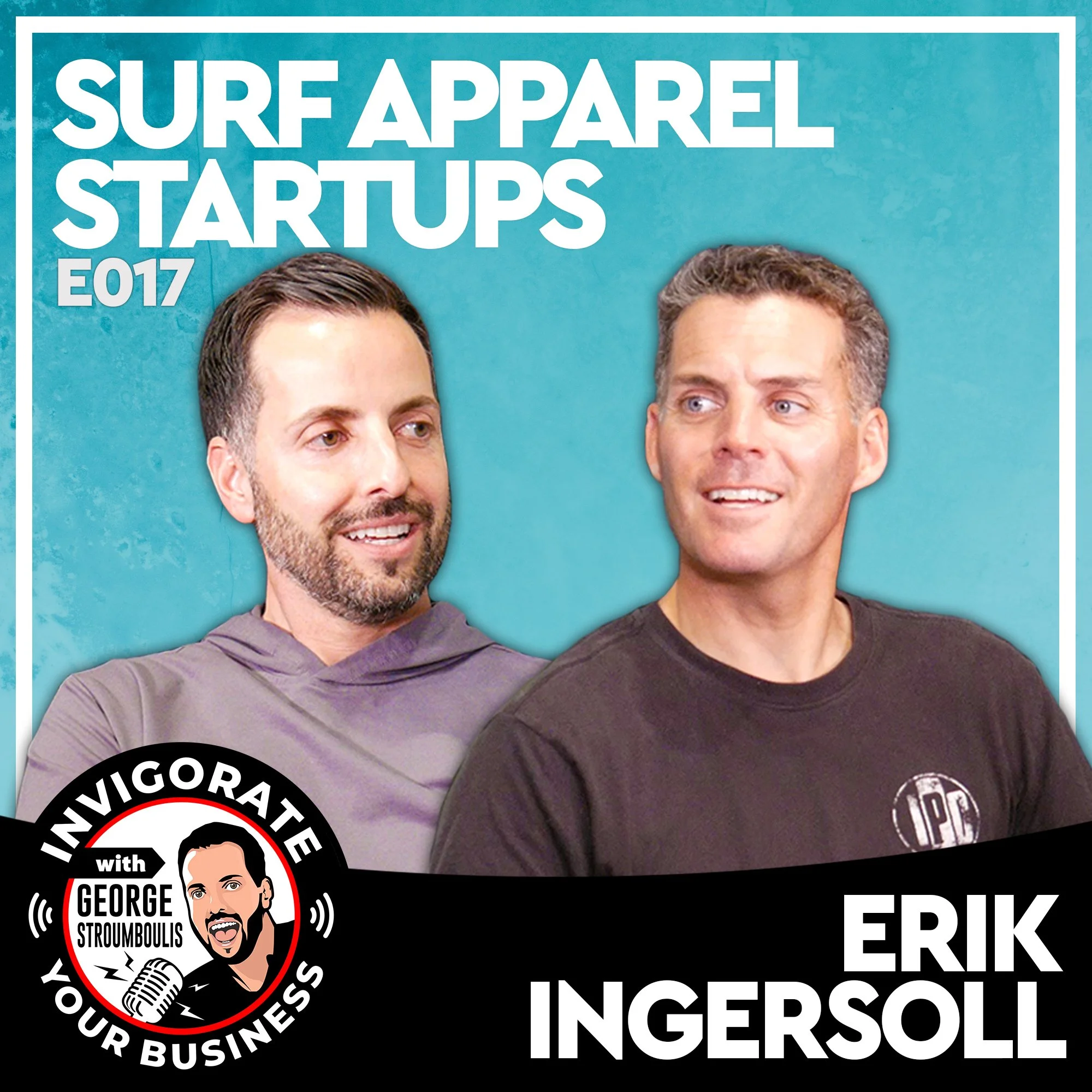
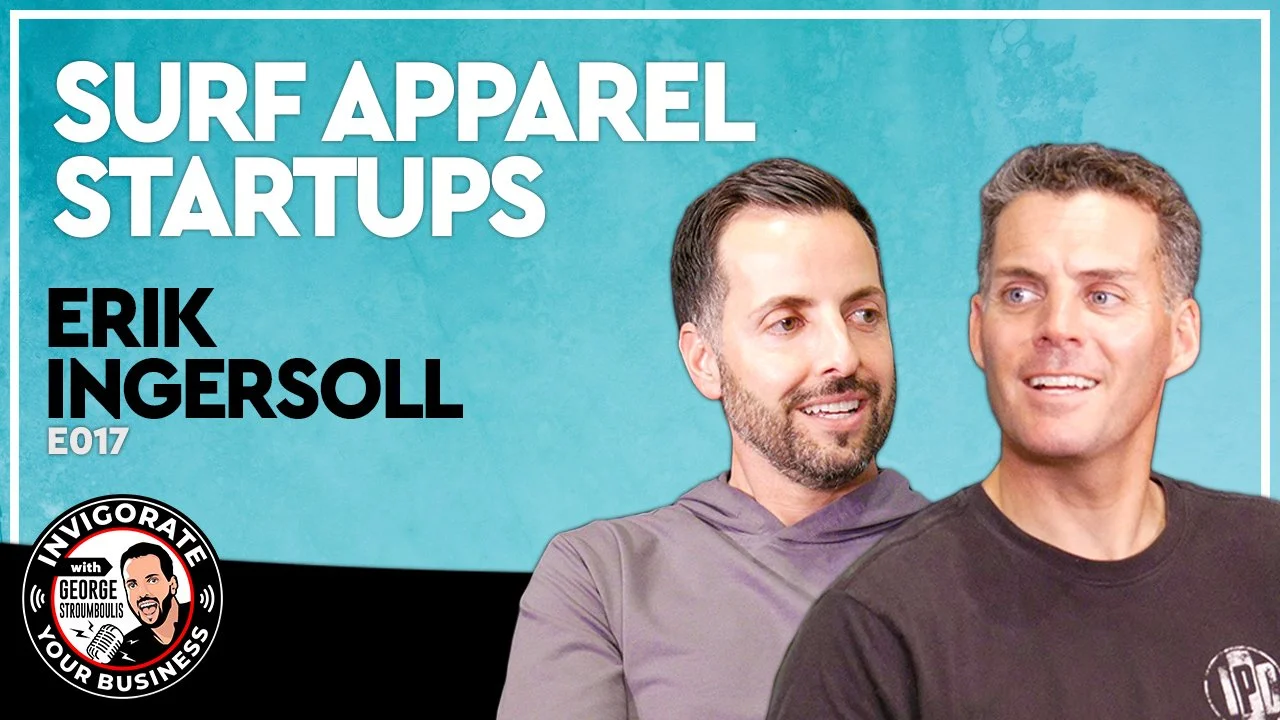
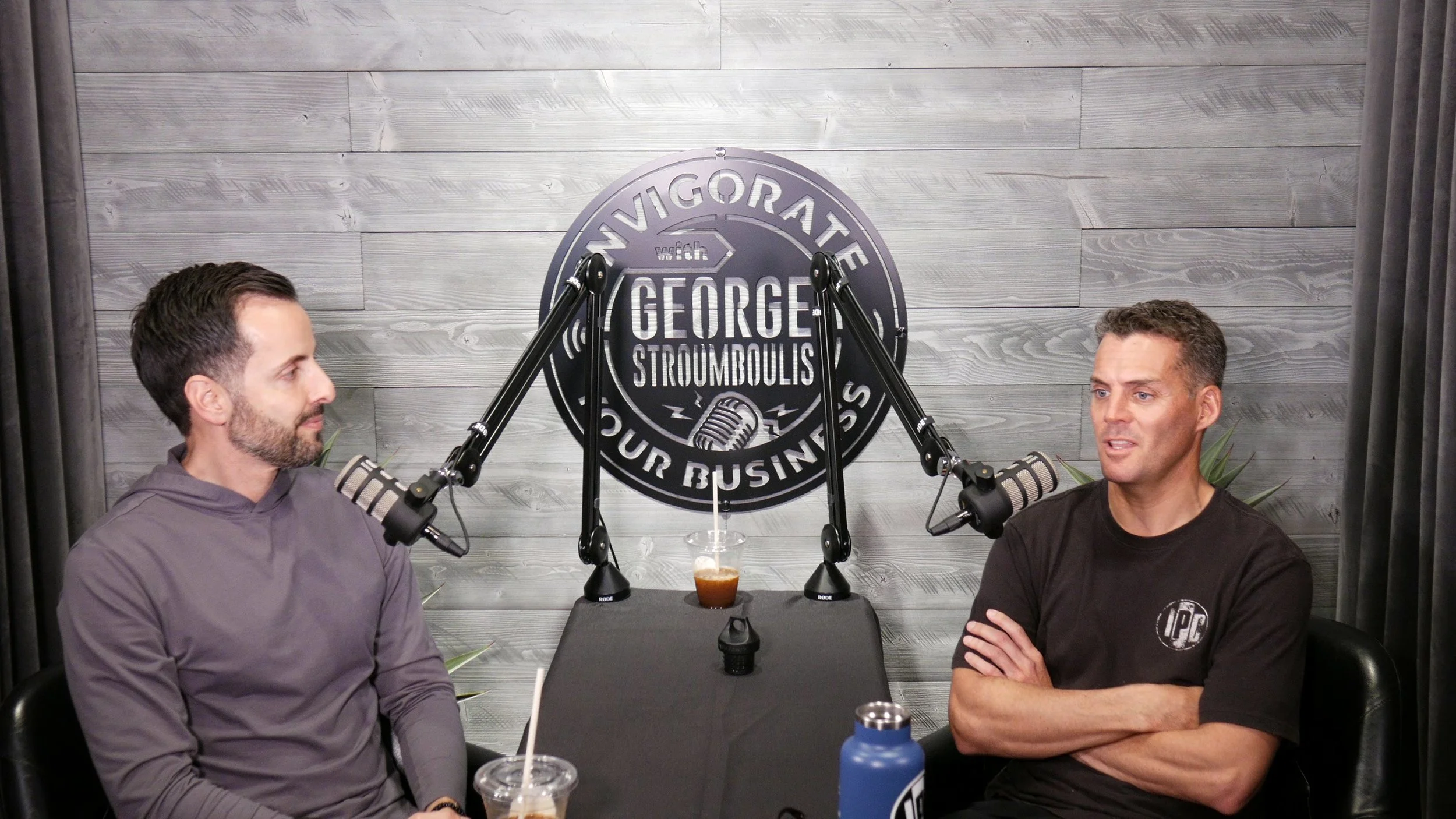
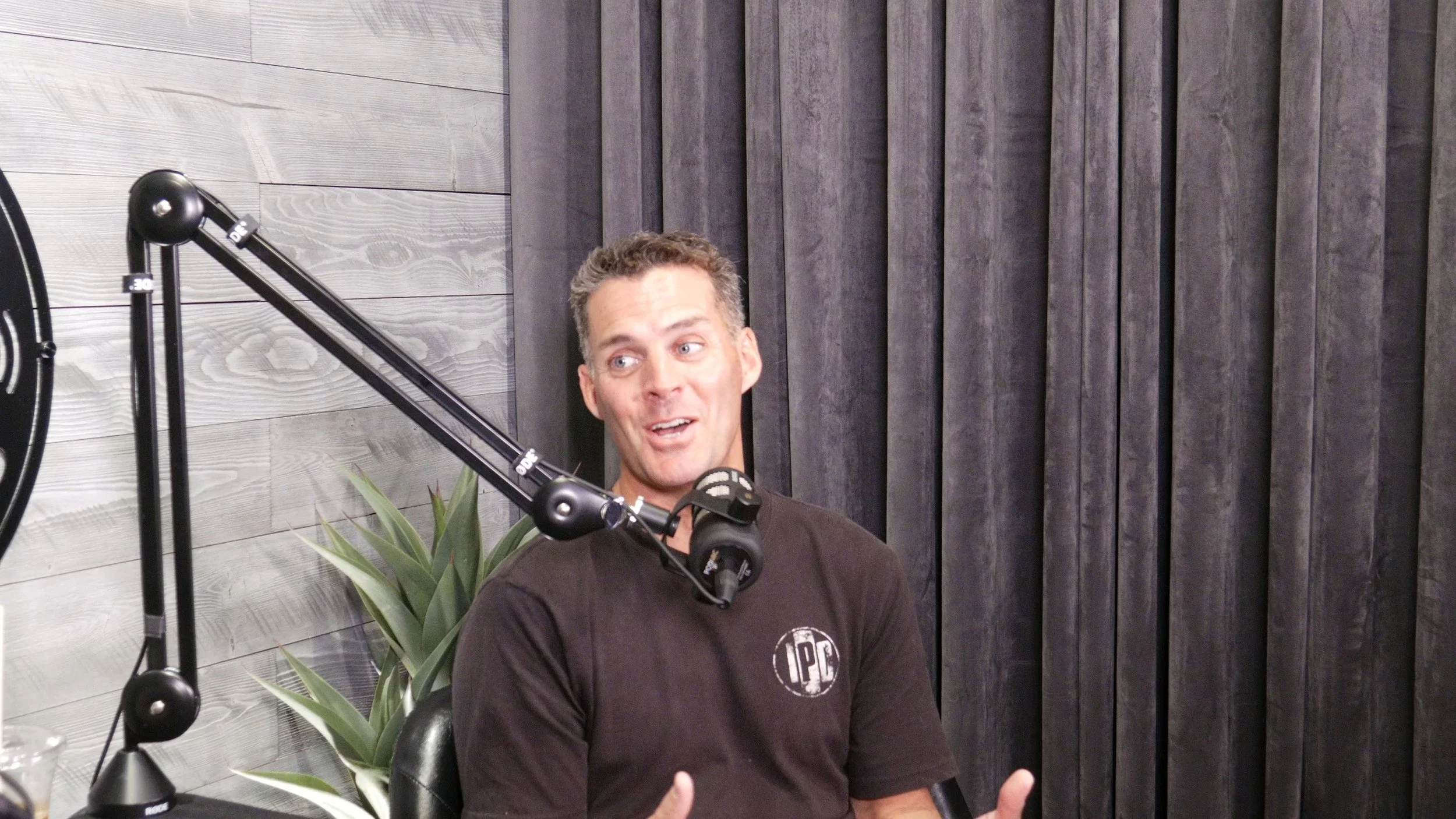
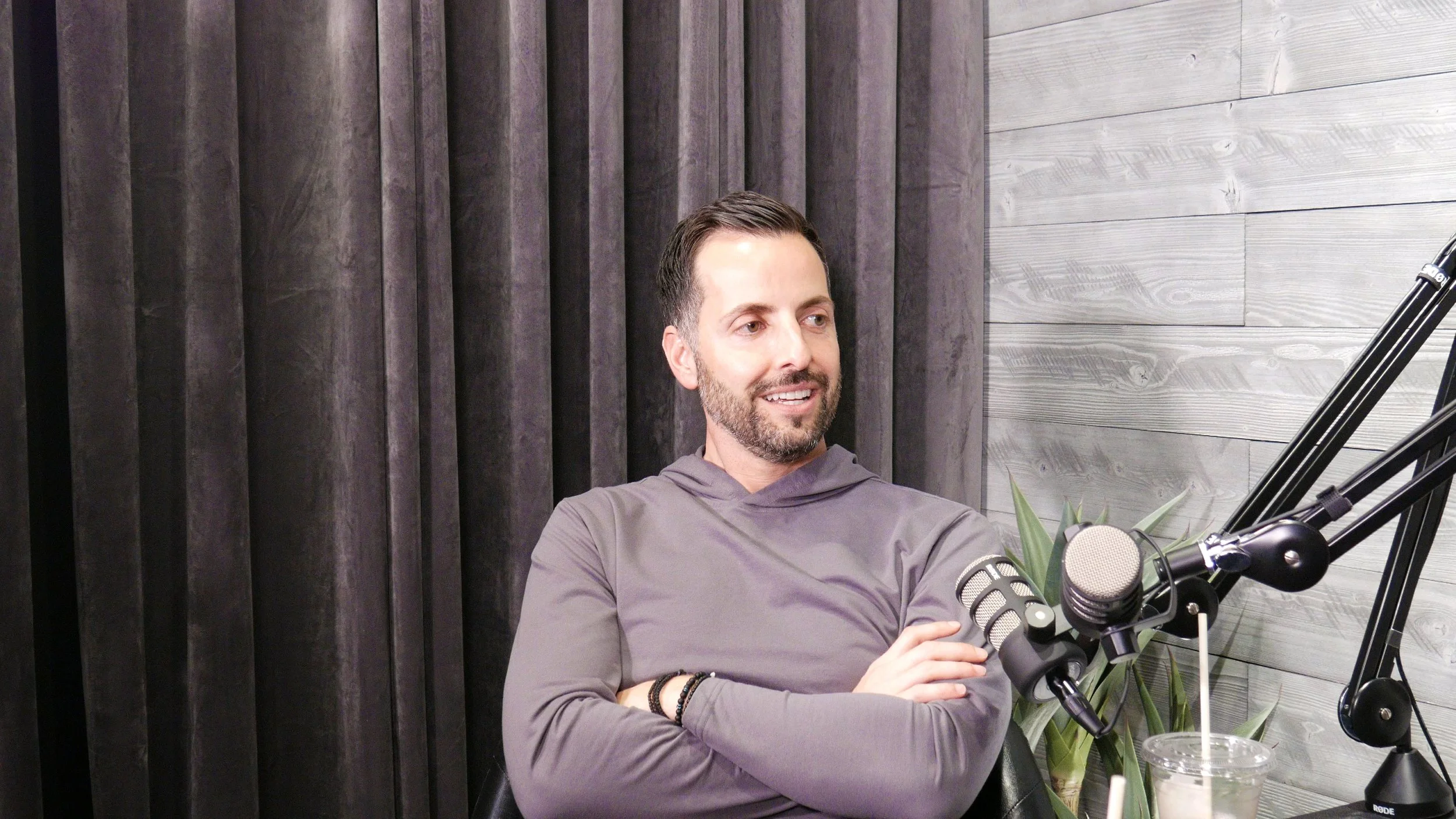
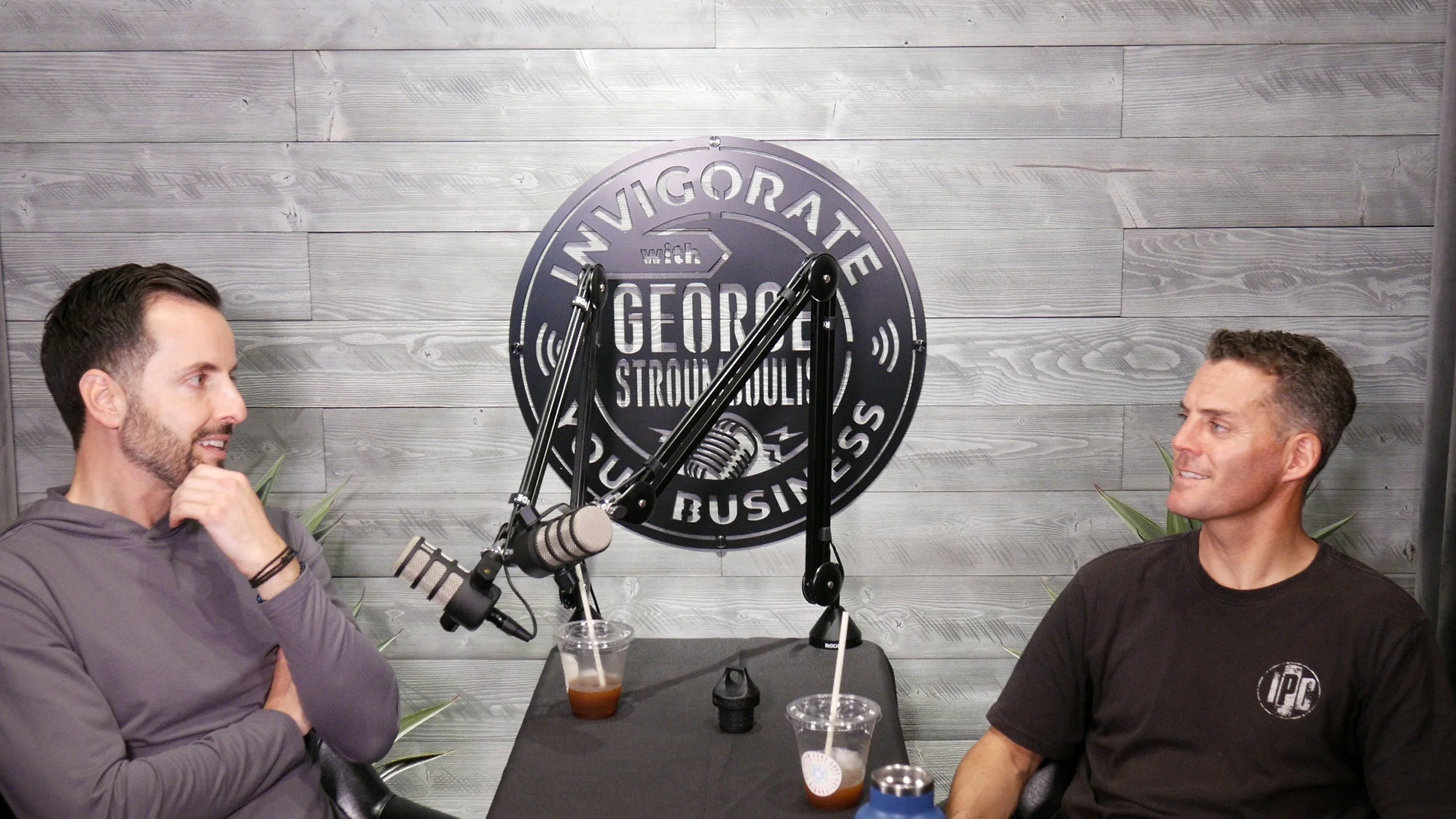
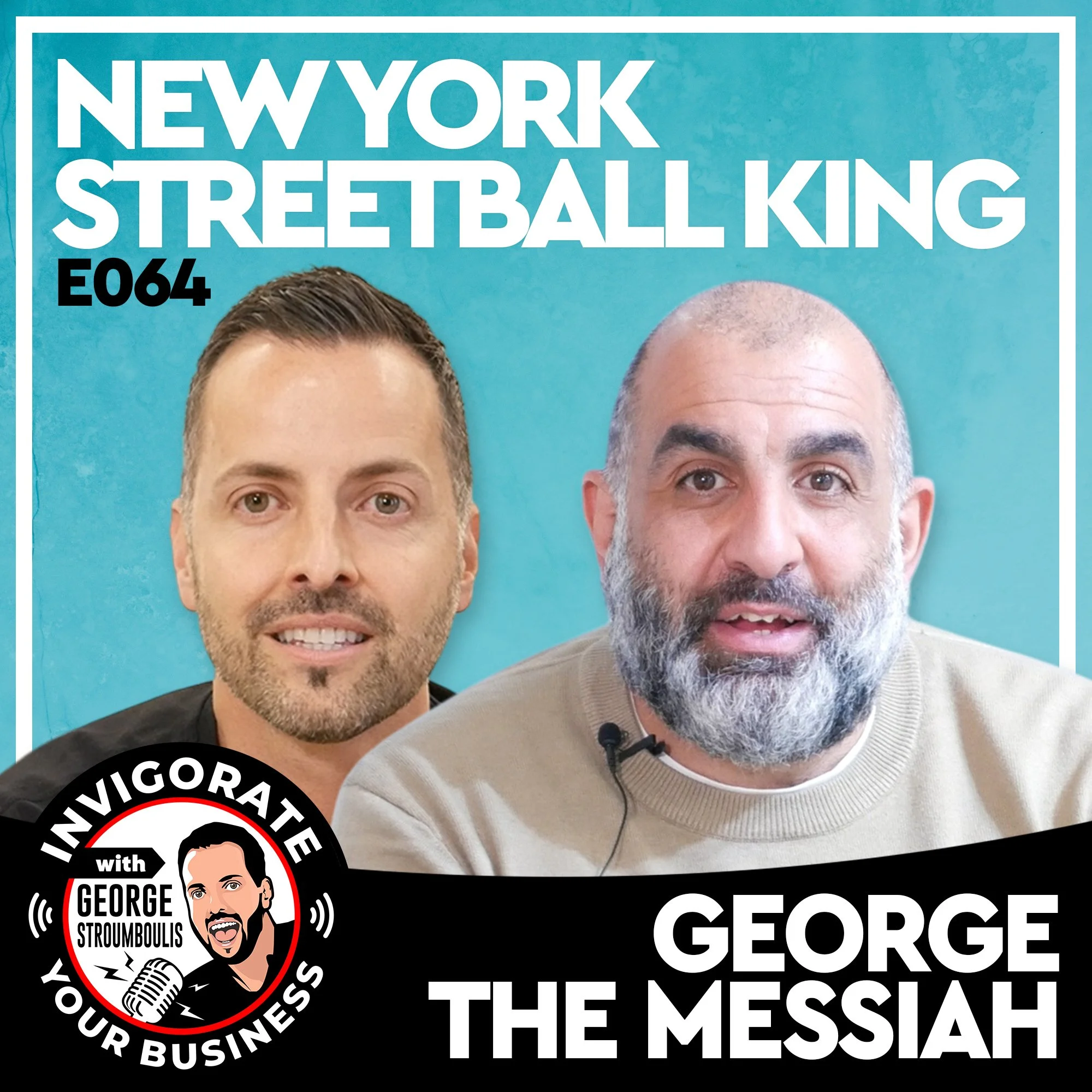
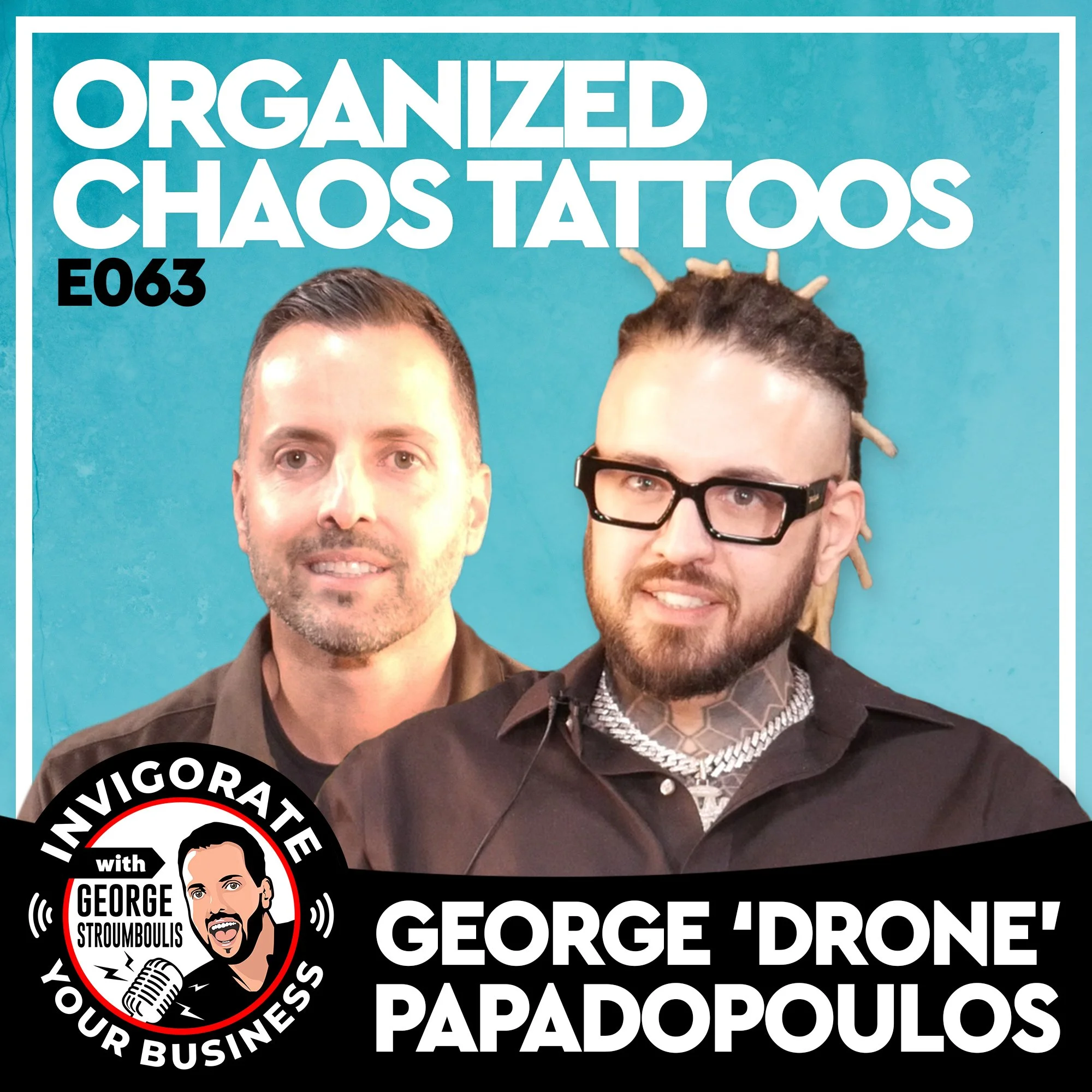

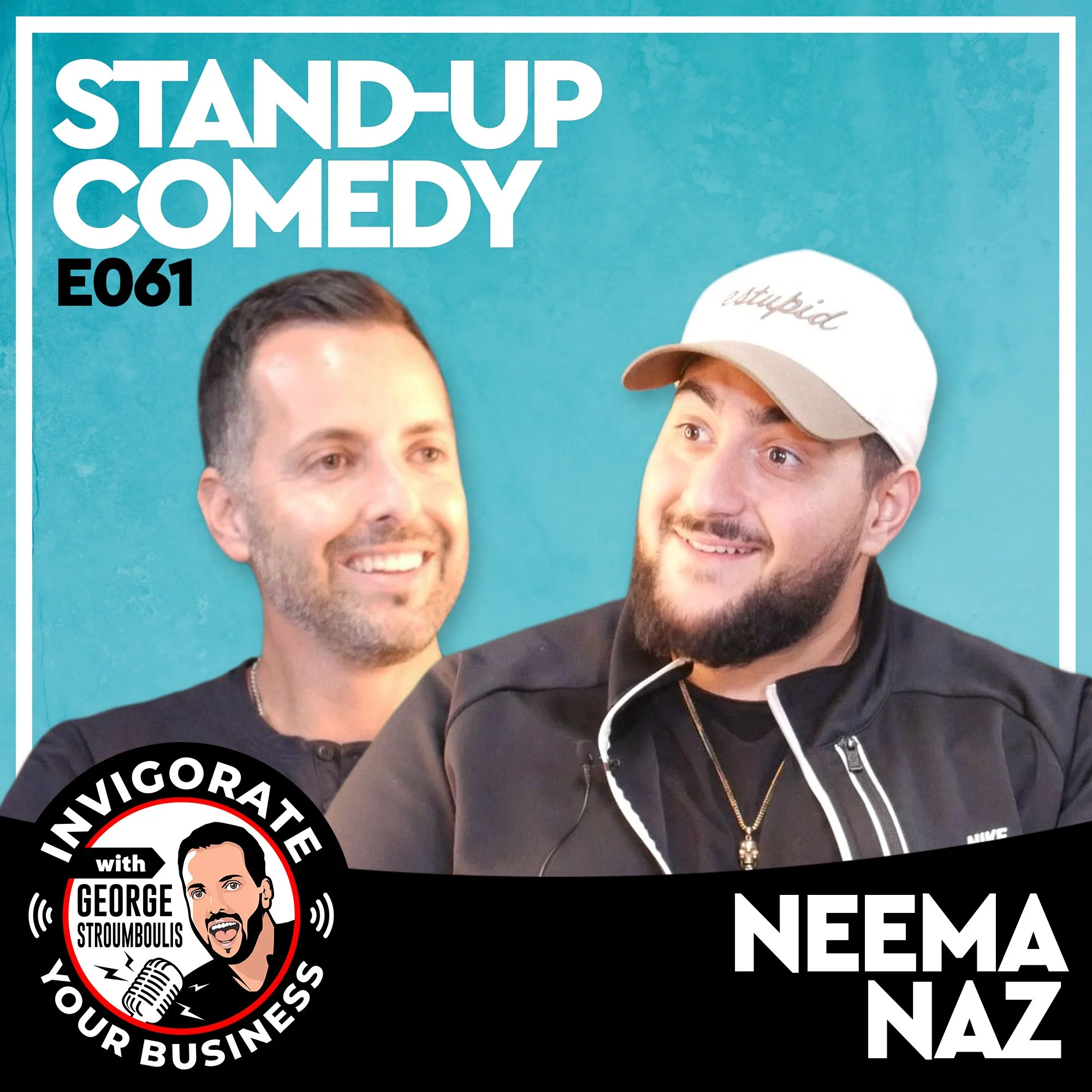
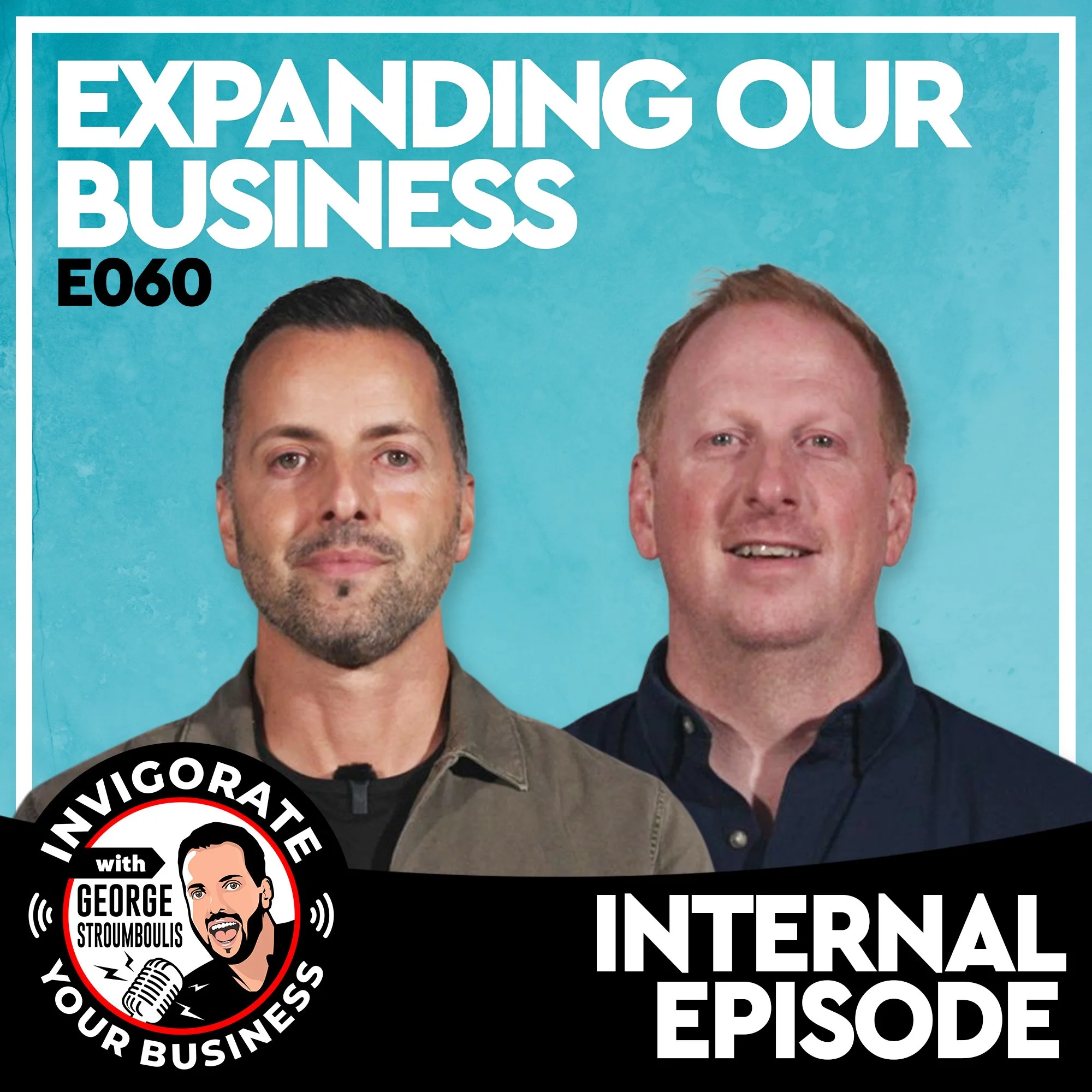
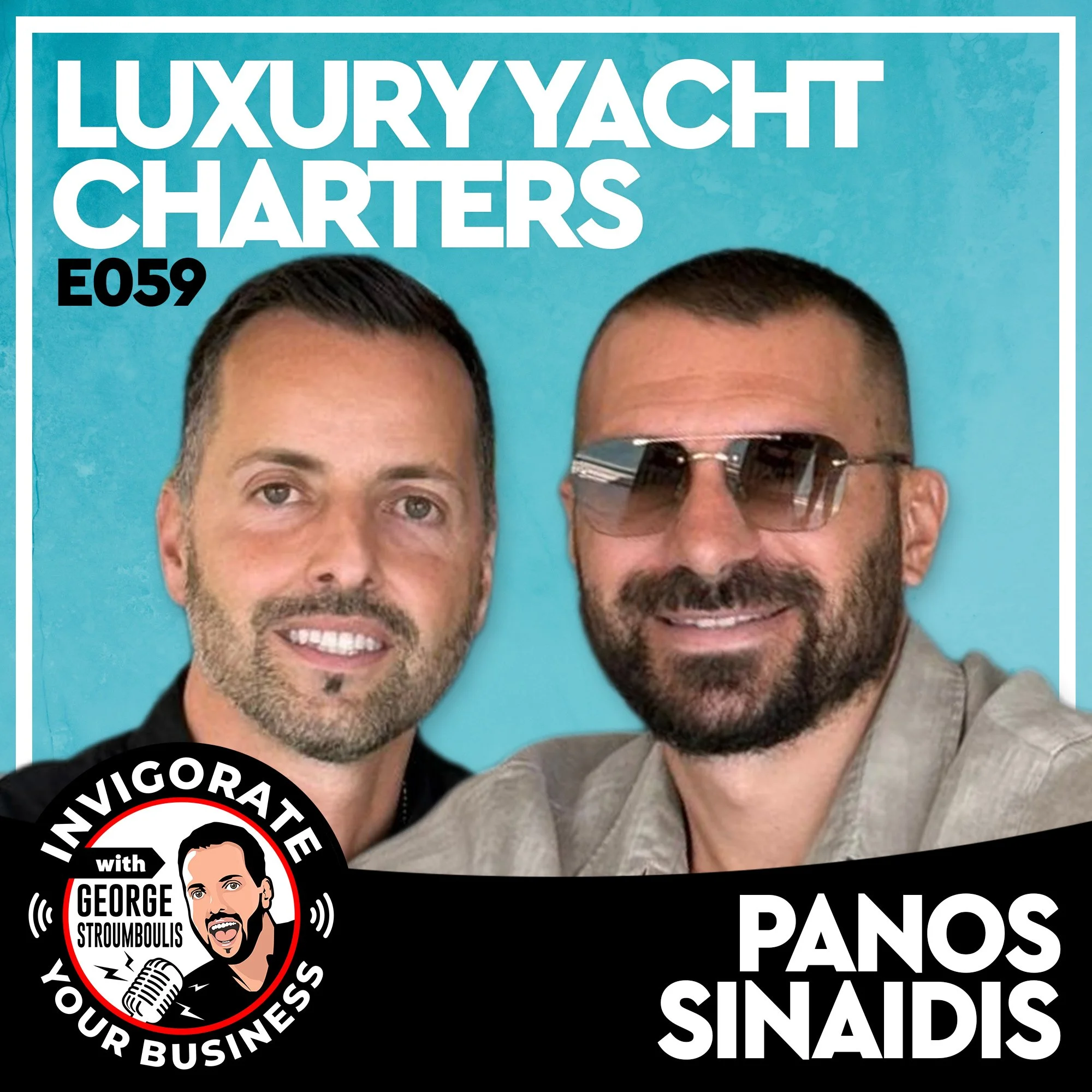
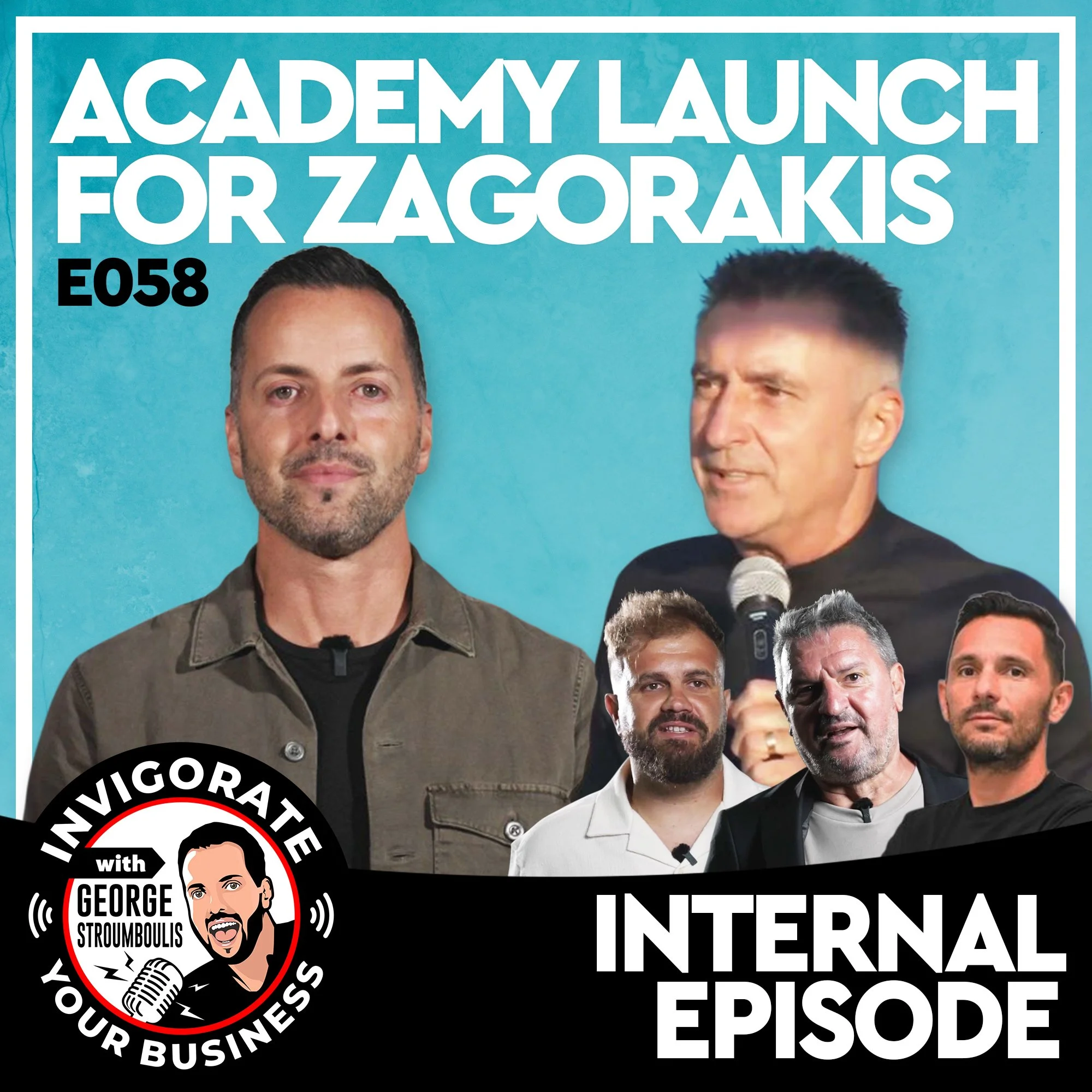
George Stroumboulis sits down in Toronto with Anthony Sorella — co-founder of The Neighbourhood Agency and co-host of the Money Buys Happiness podcast. They dive into his early career, how he and his partner built a no-BS media machine, why they launched MBH during the pandemic and how raw, unfiltered storytelling turned into billions of views